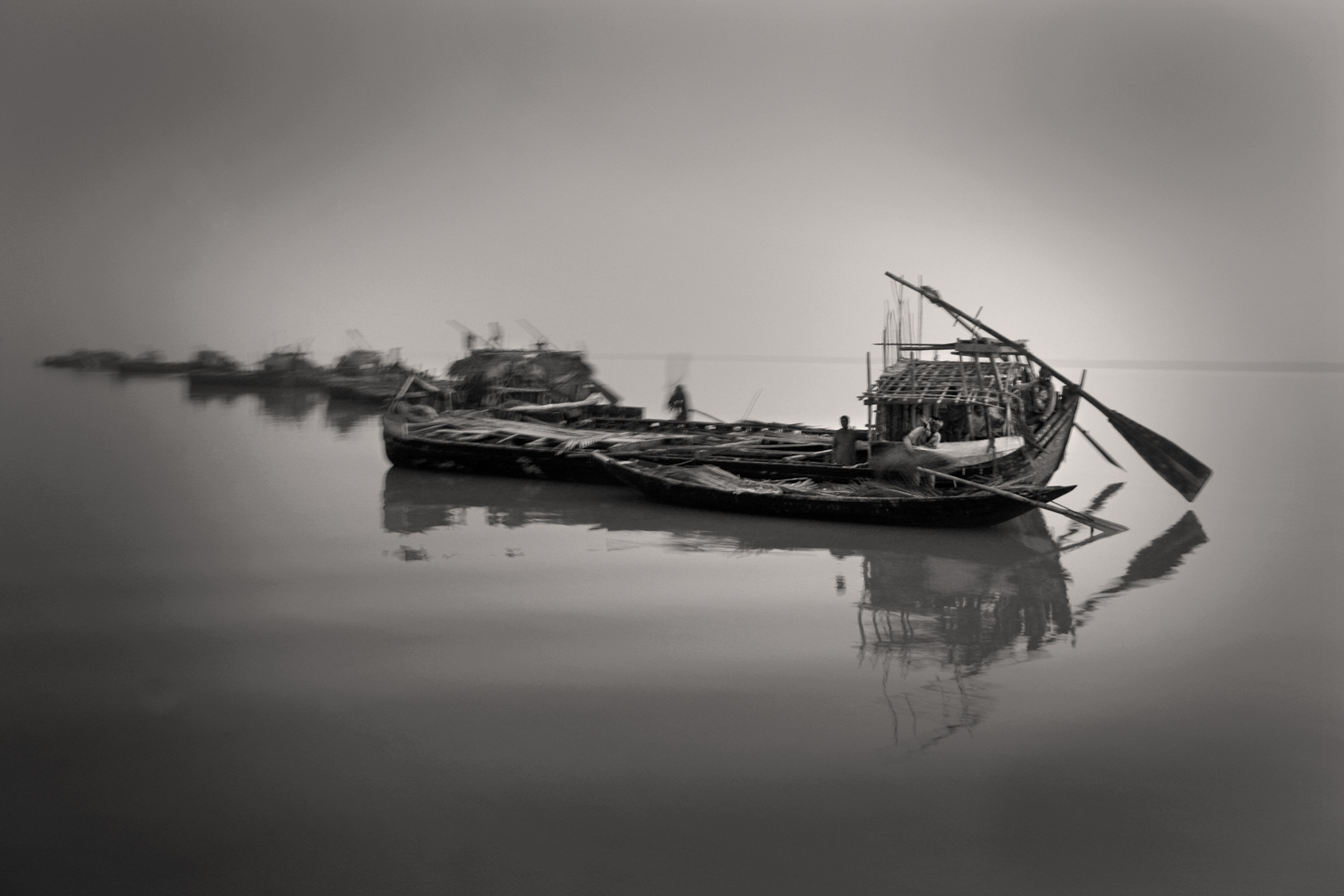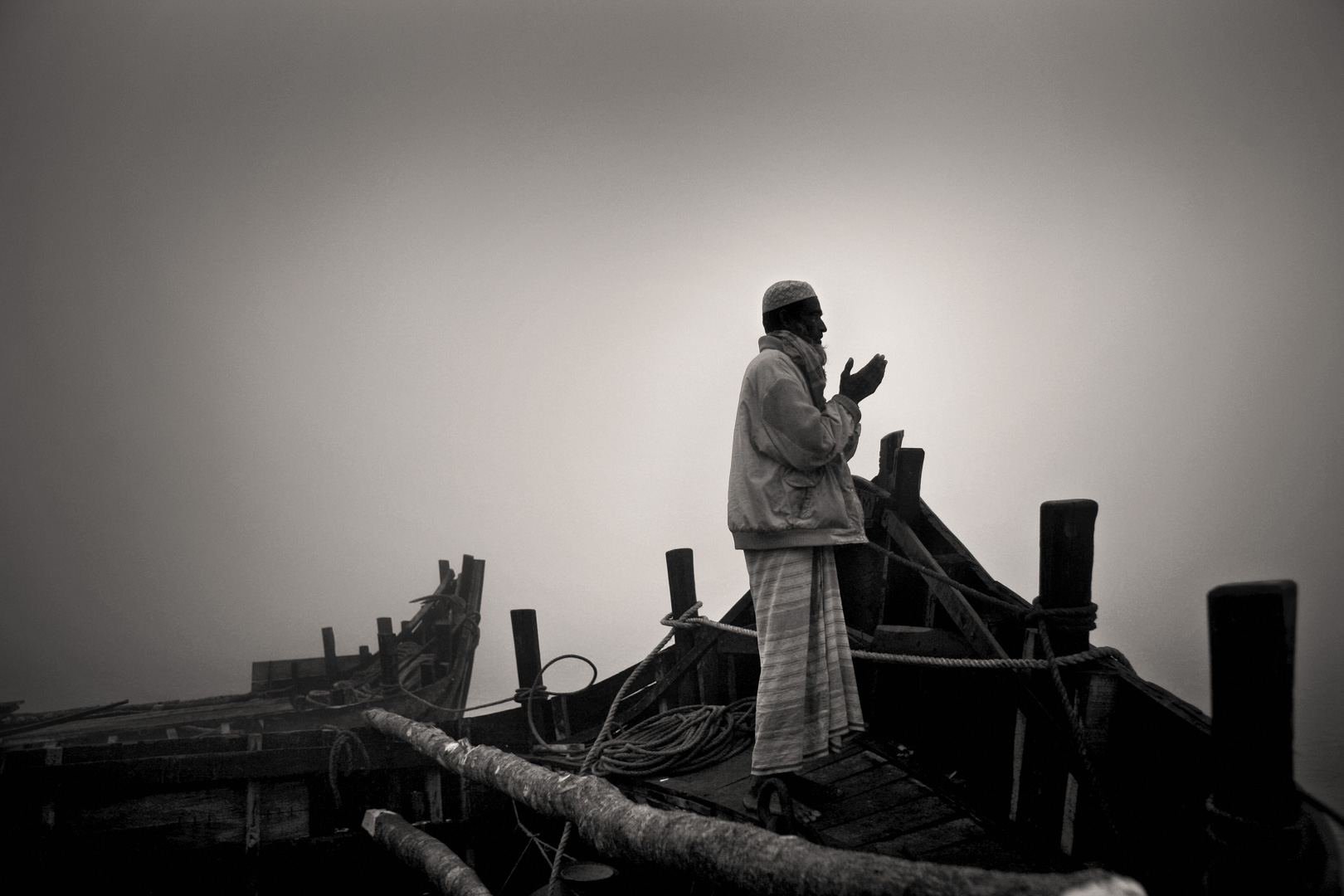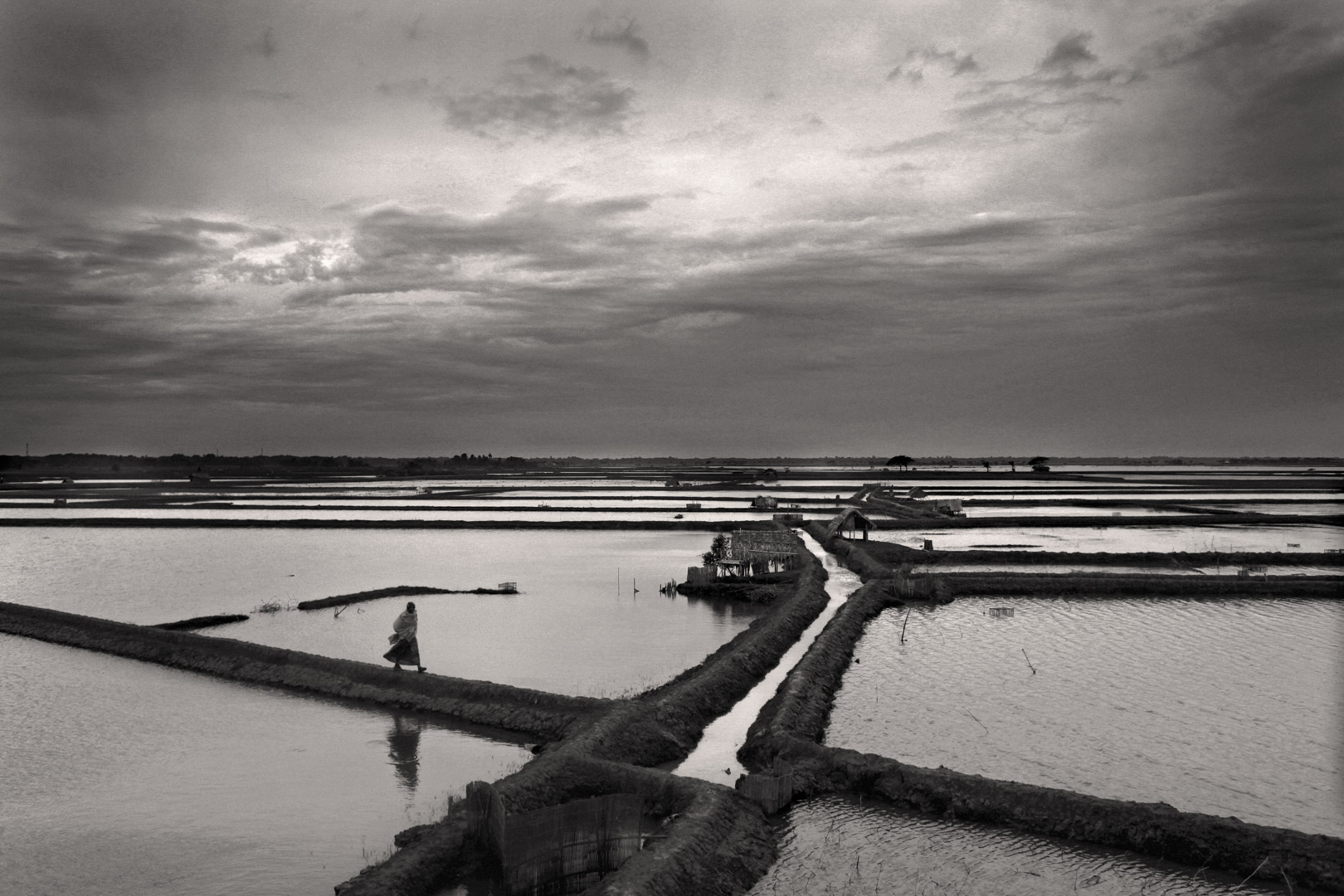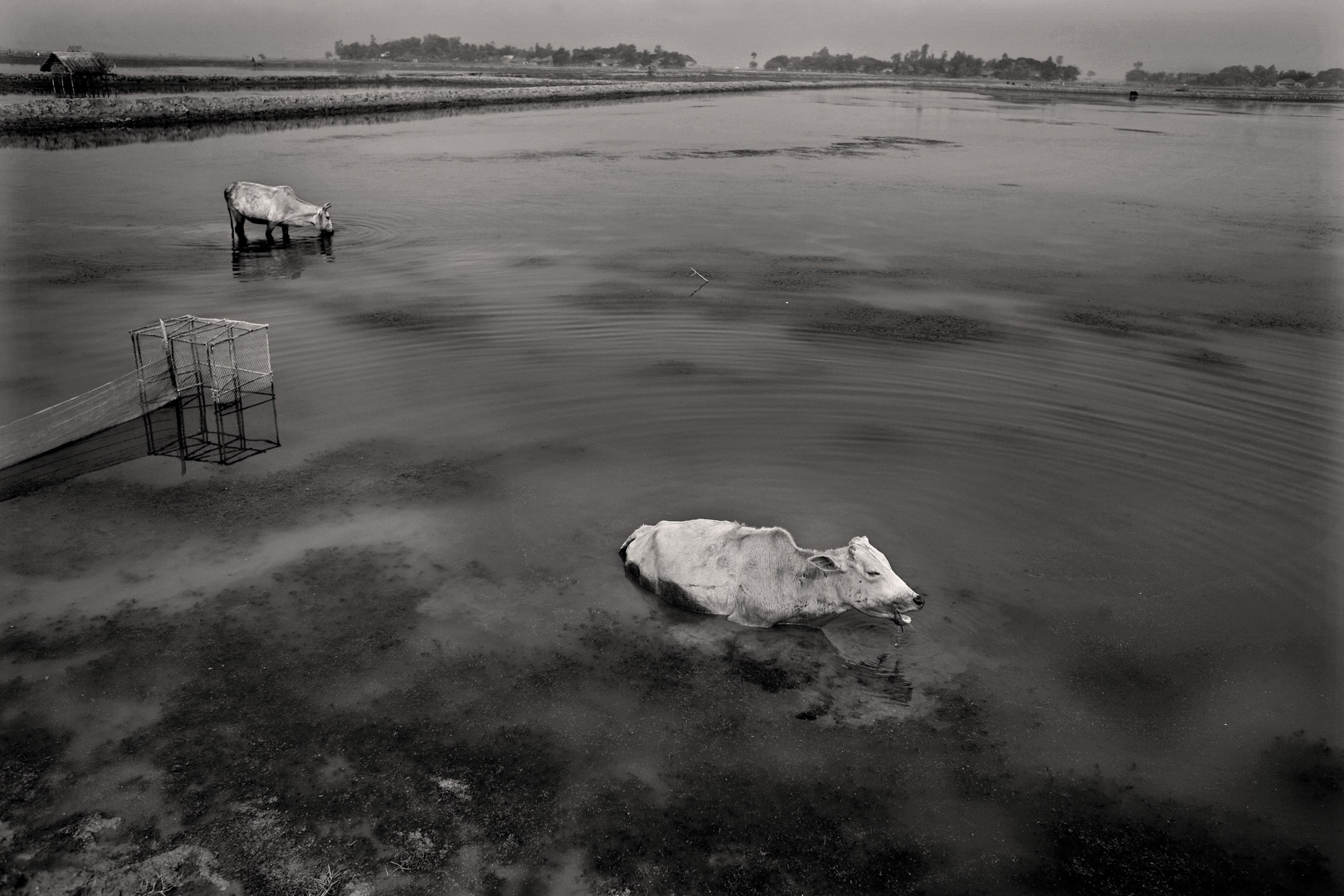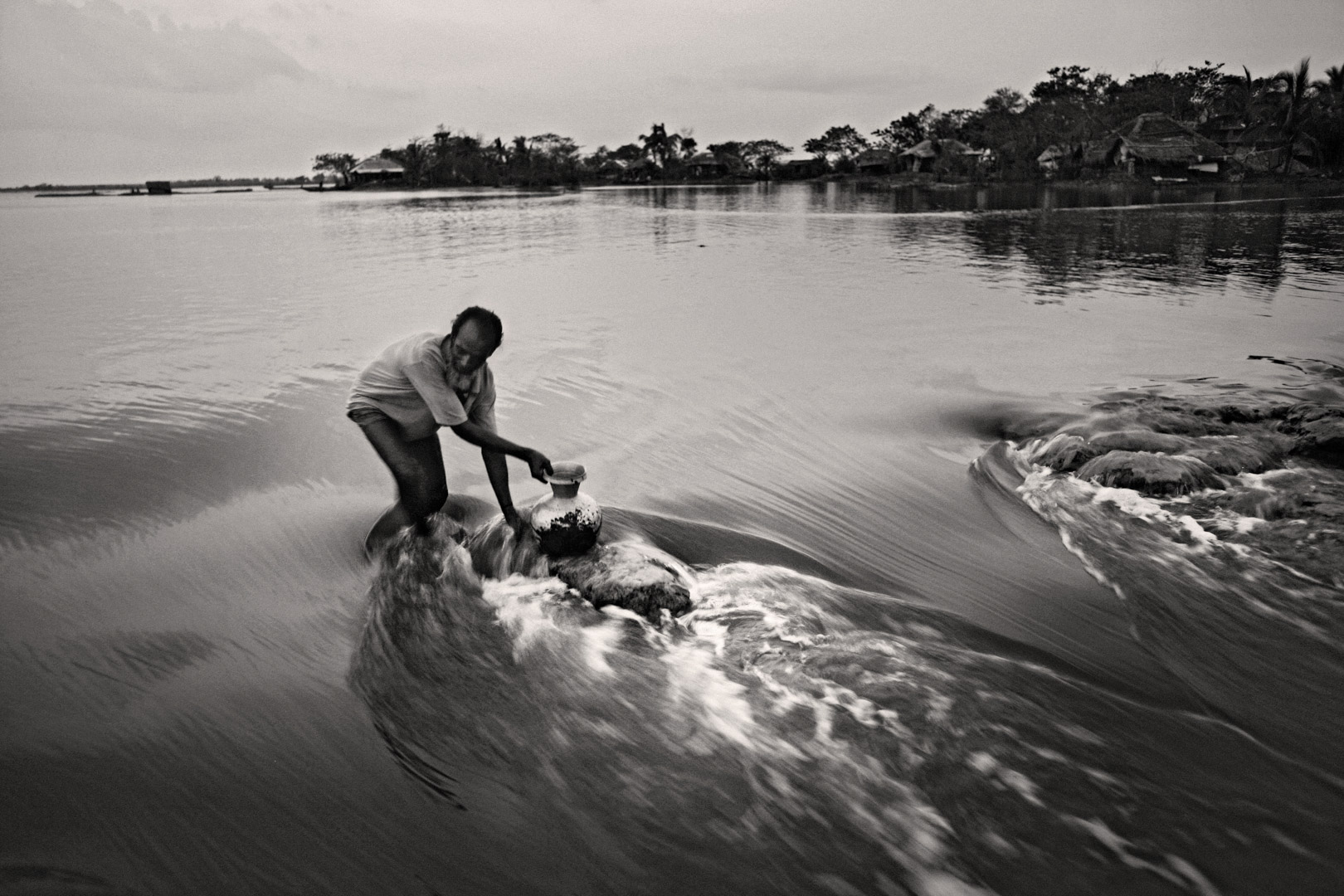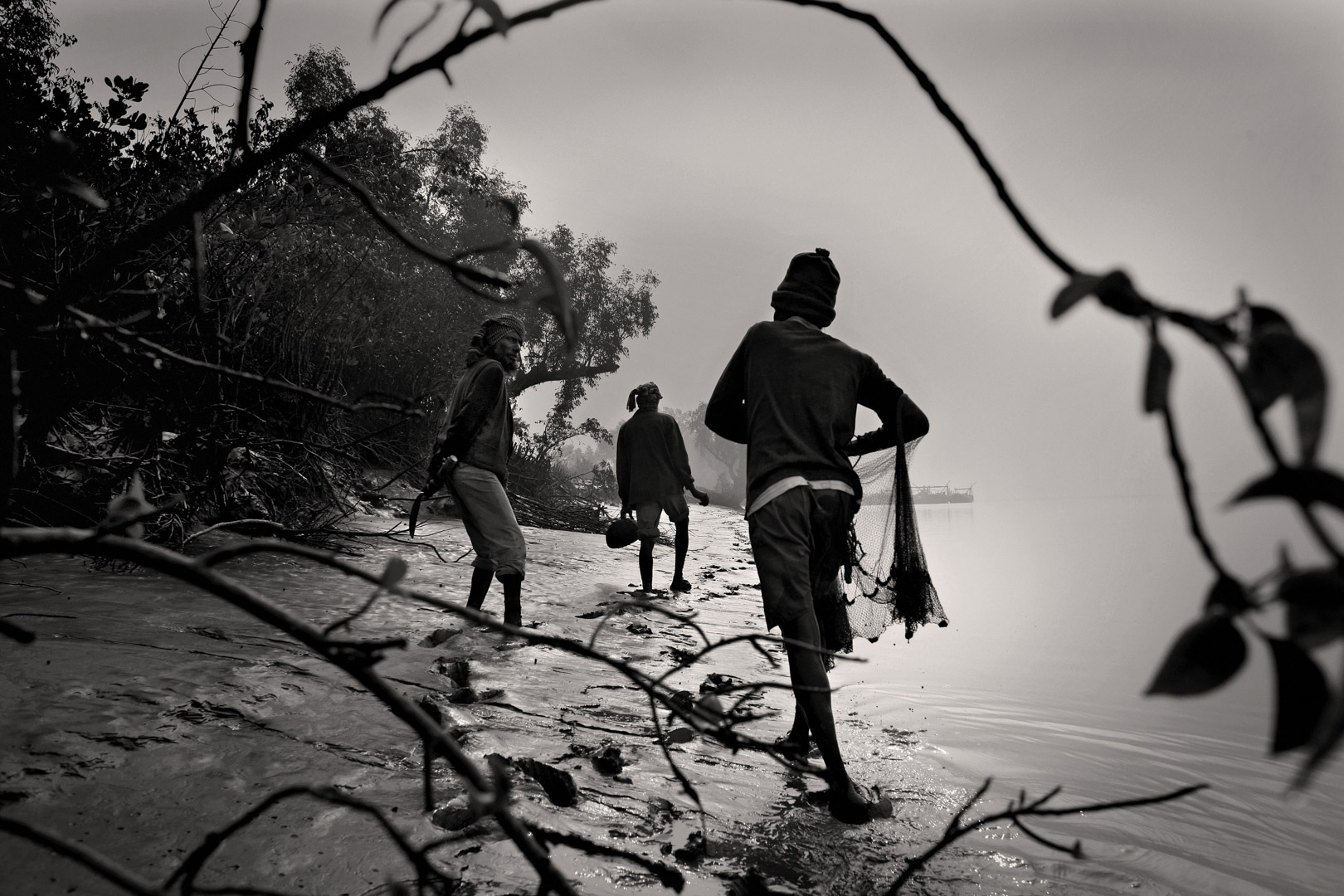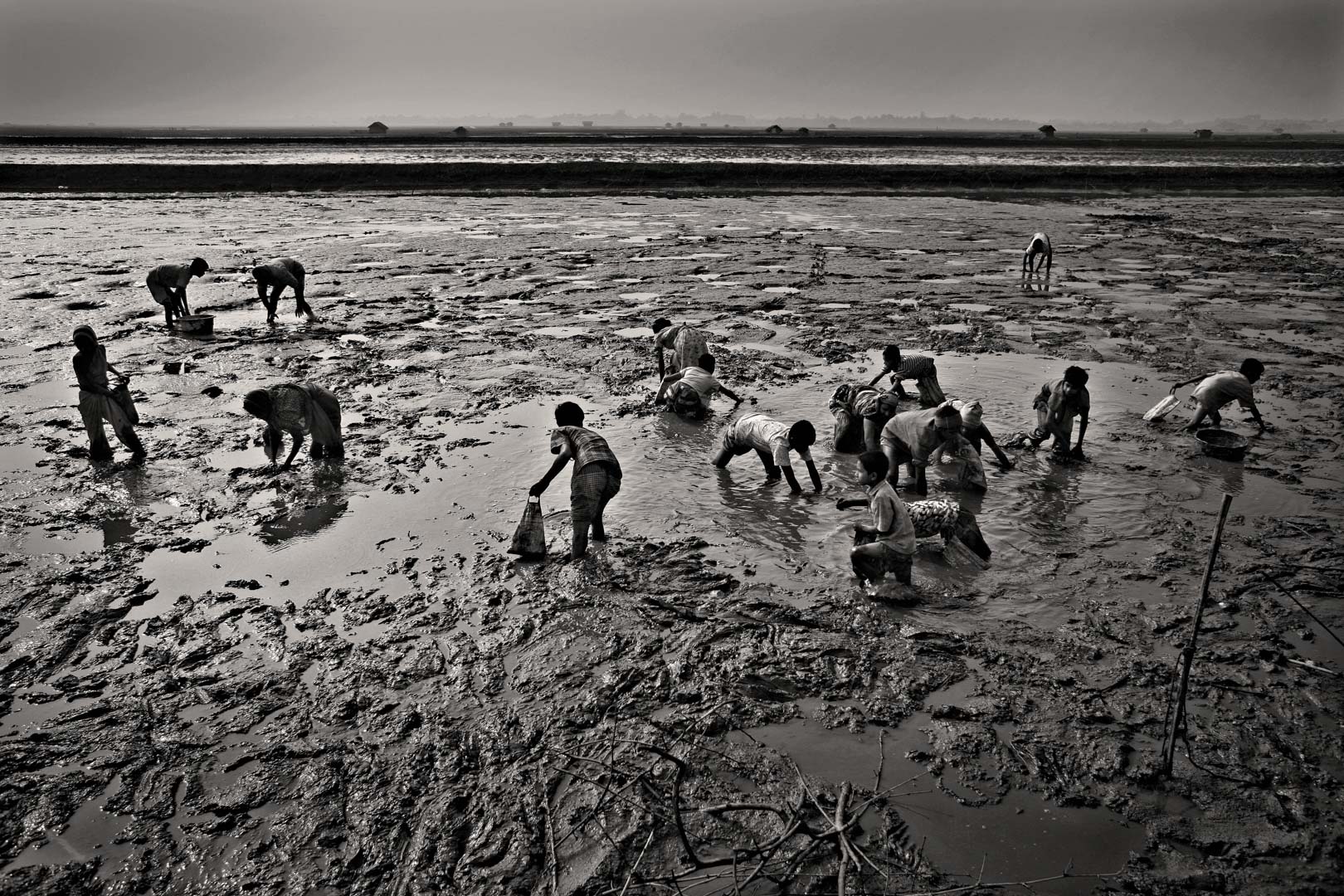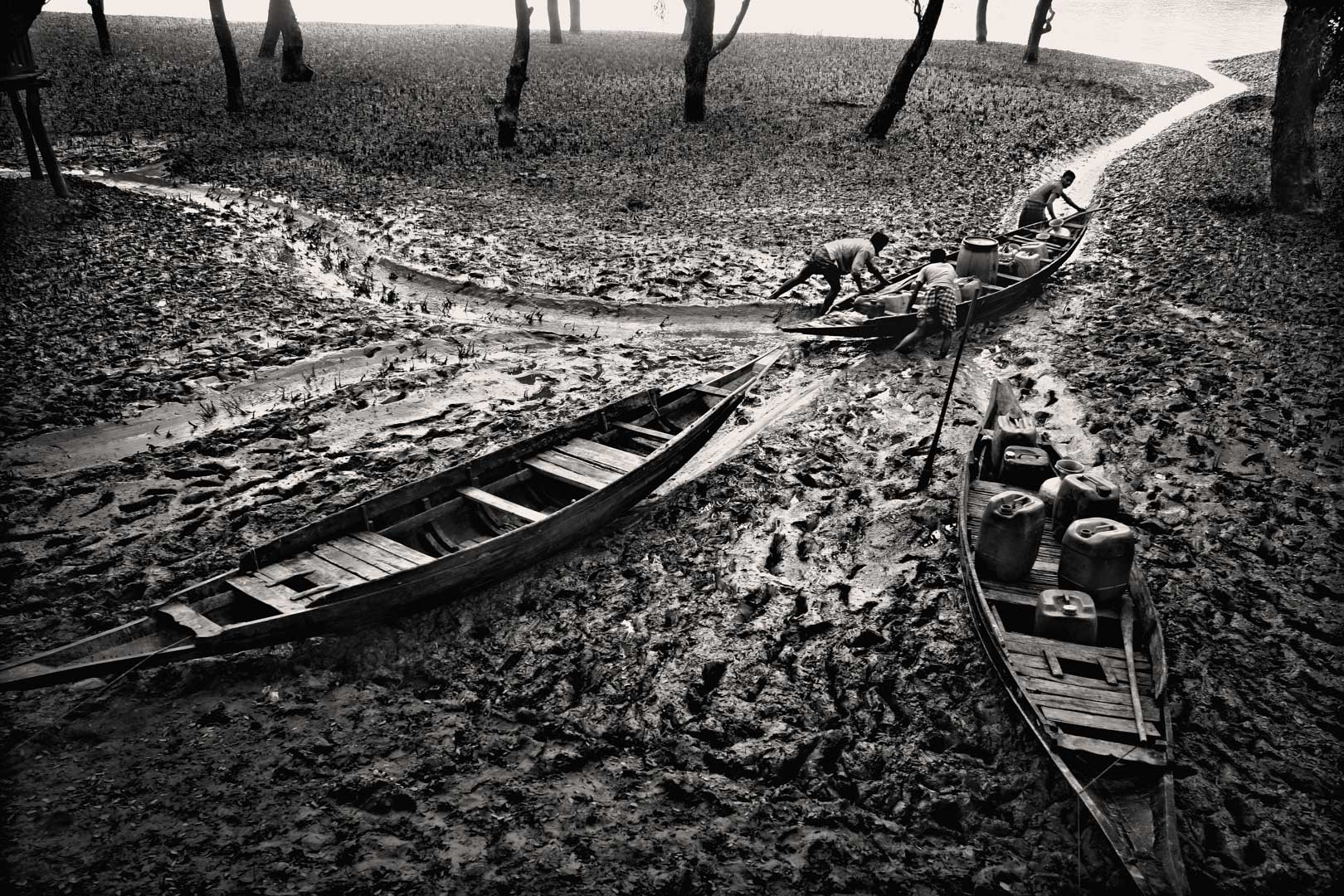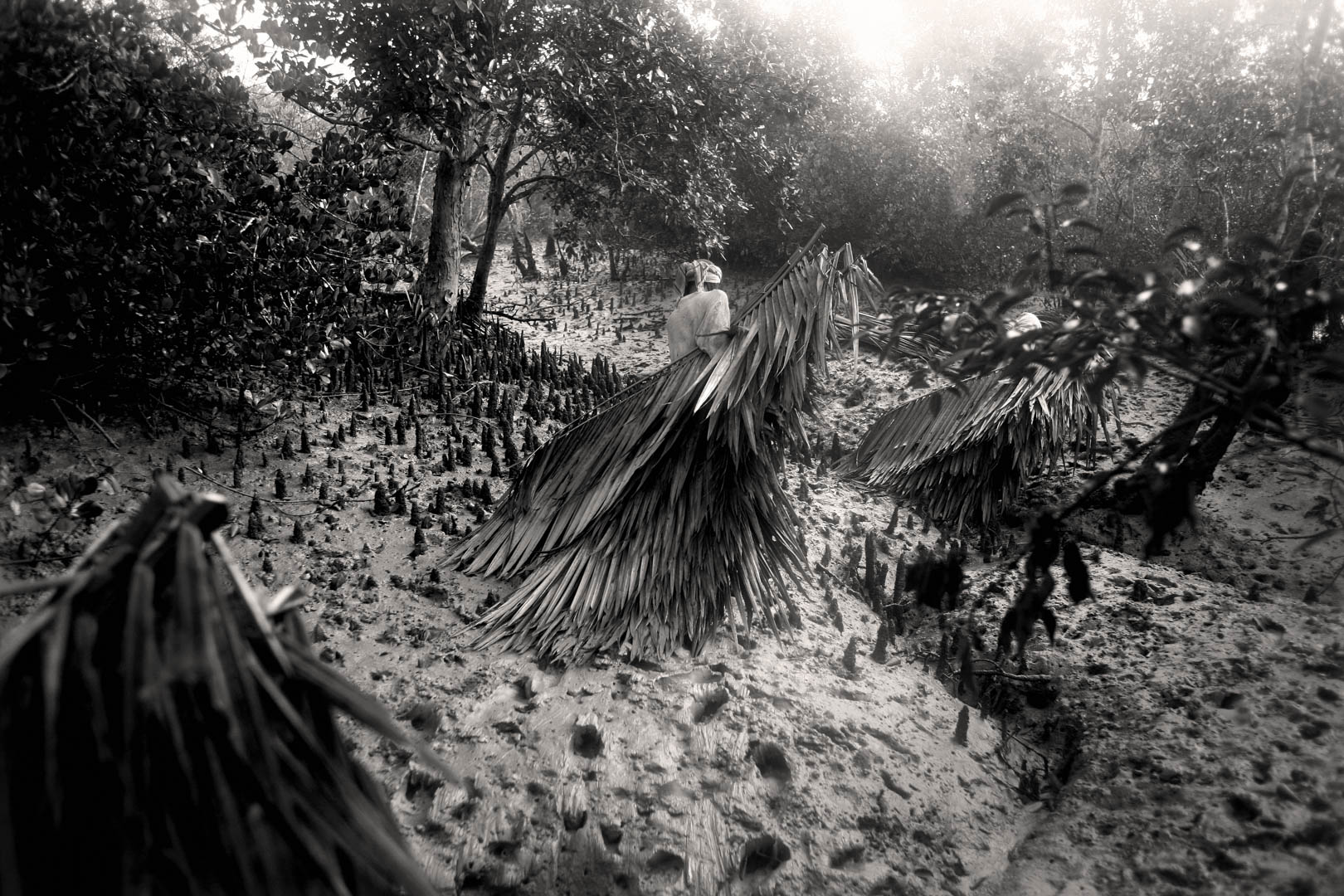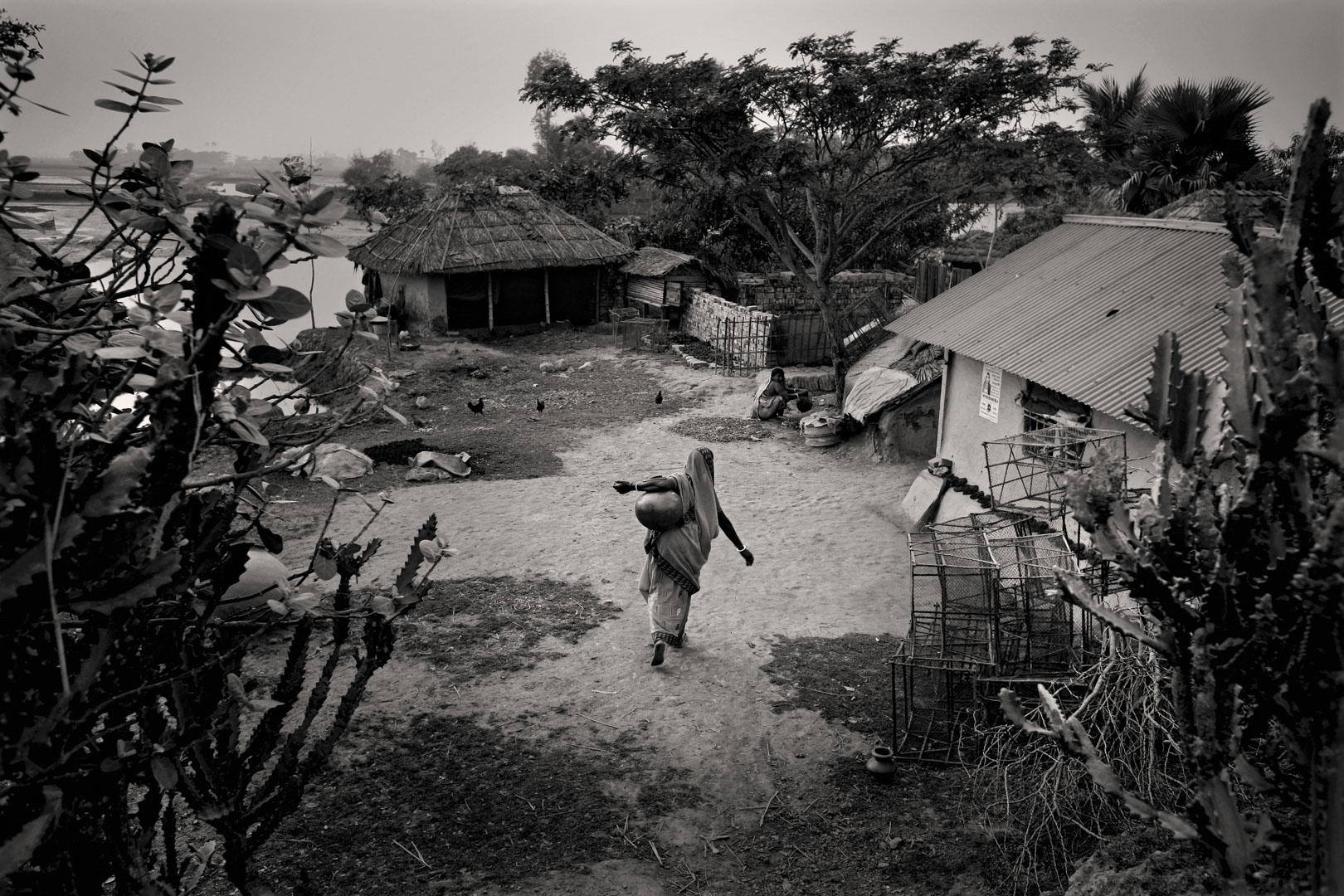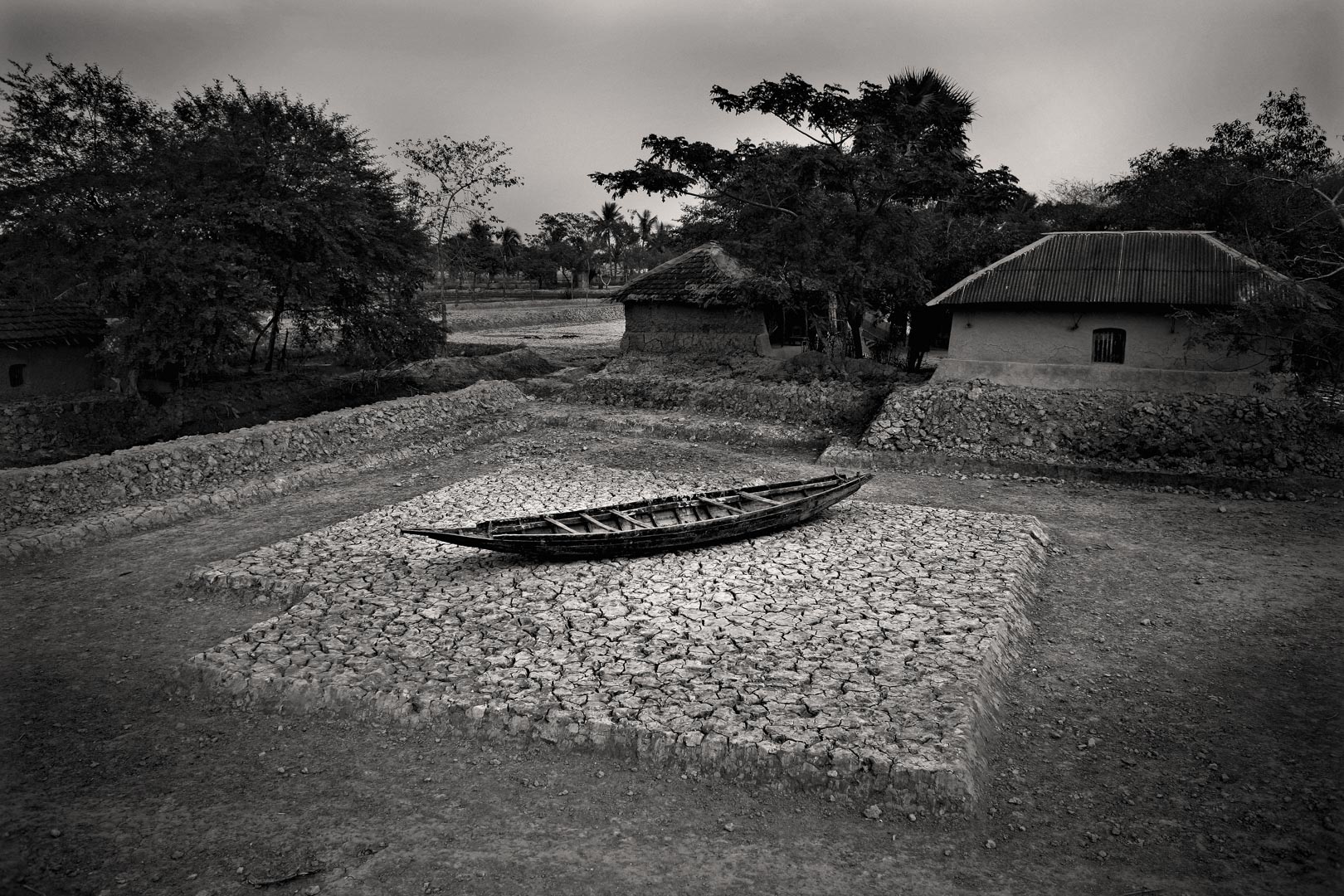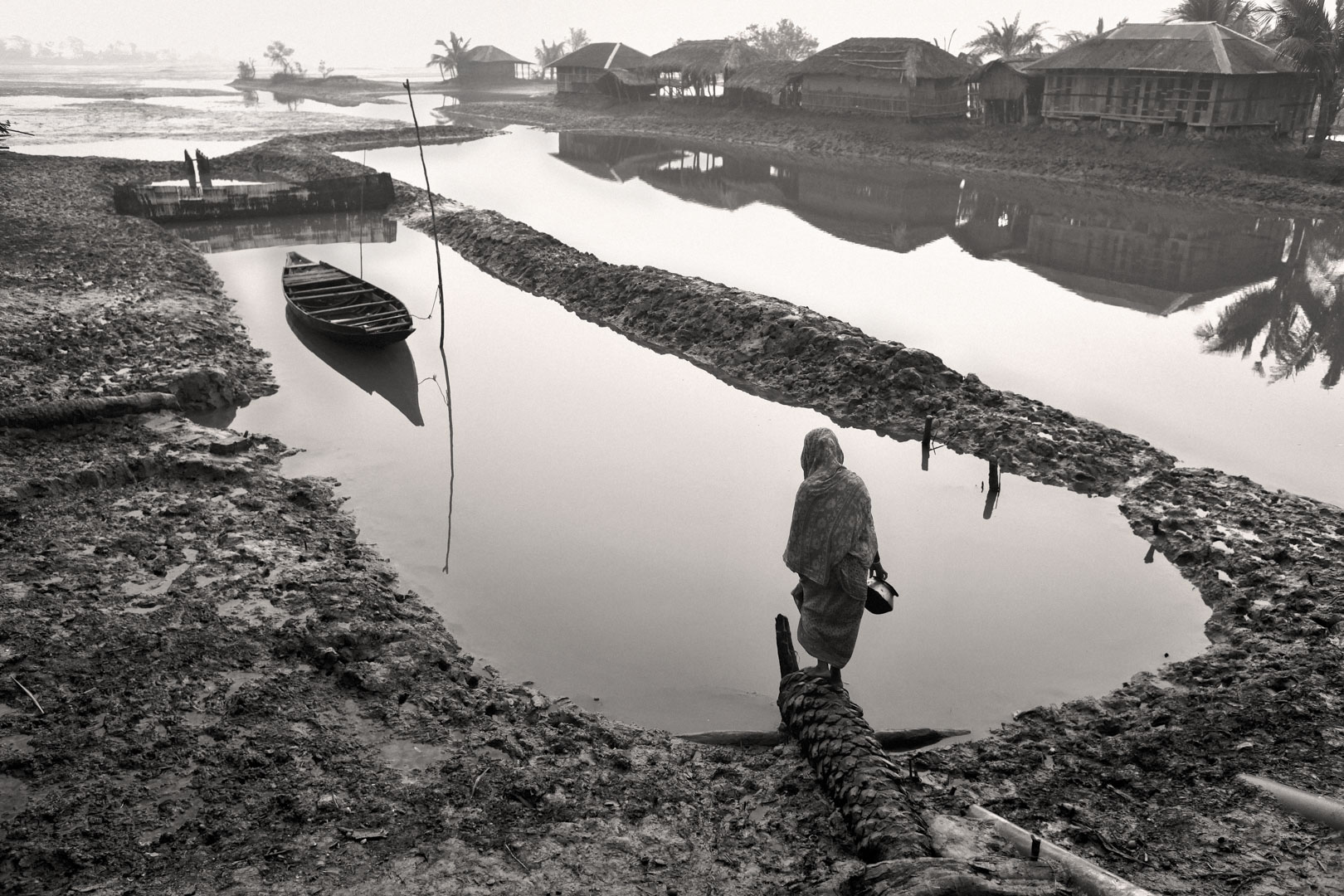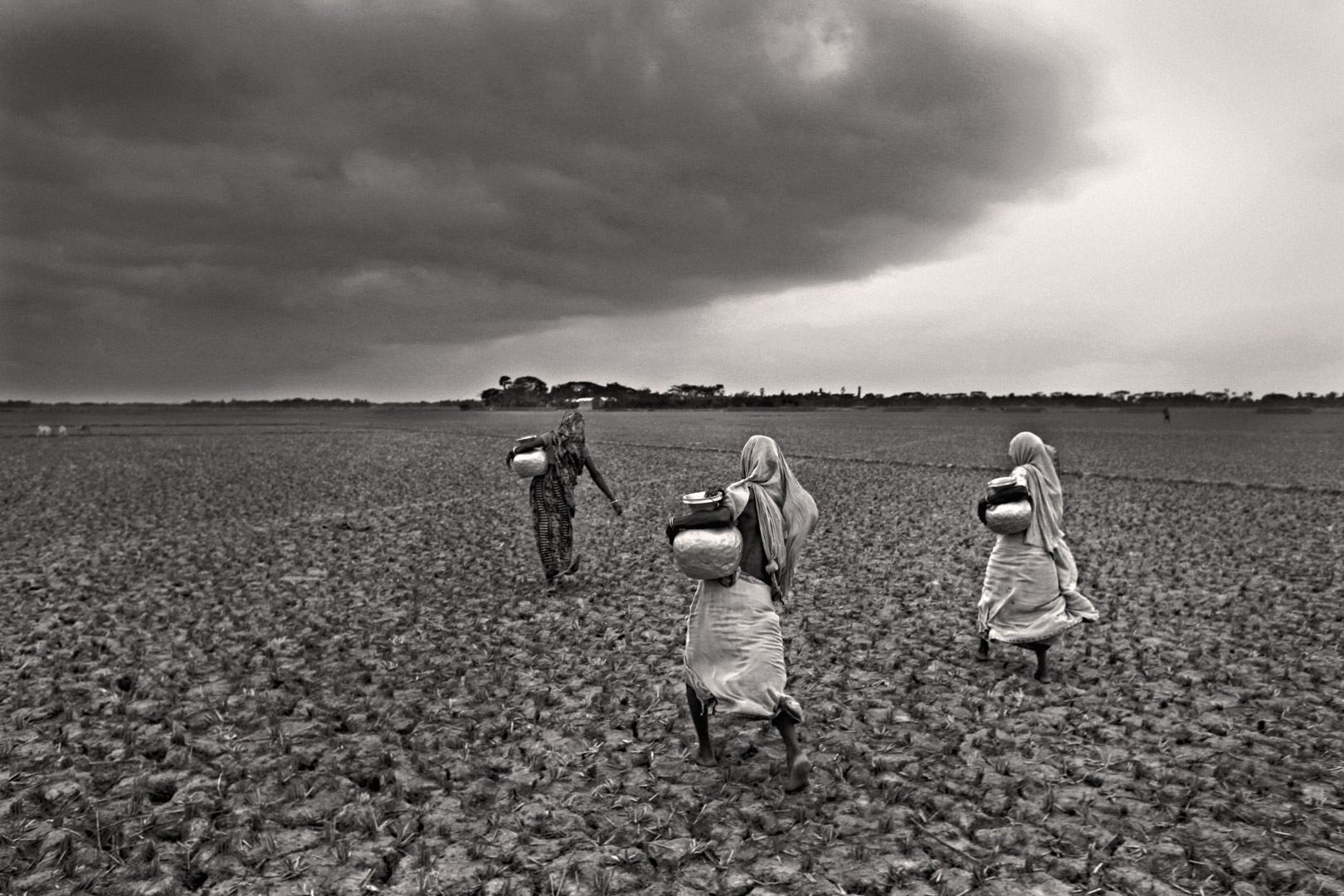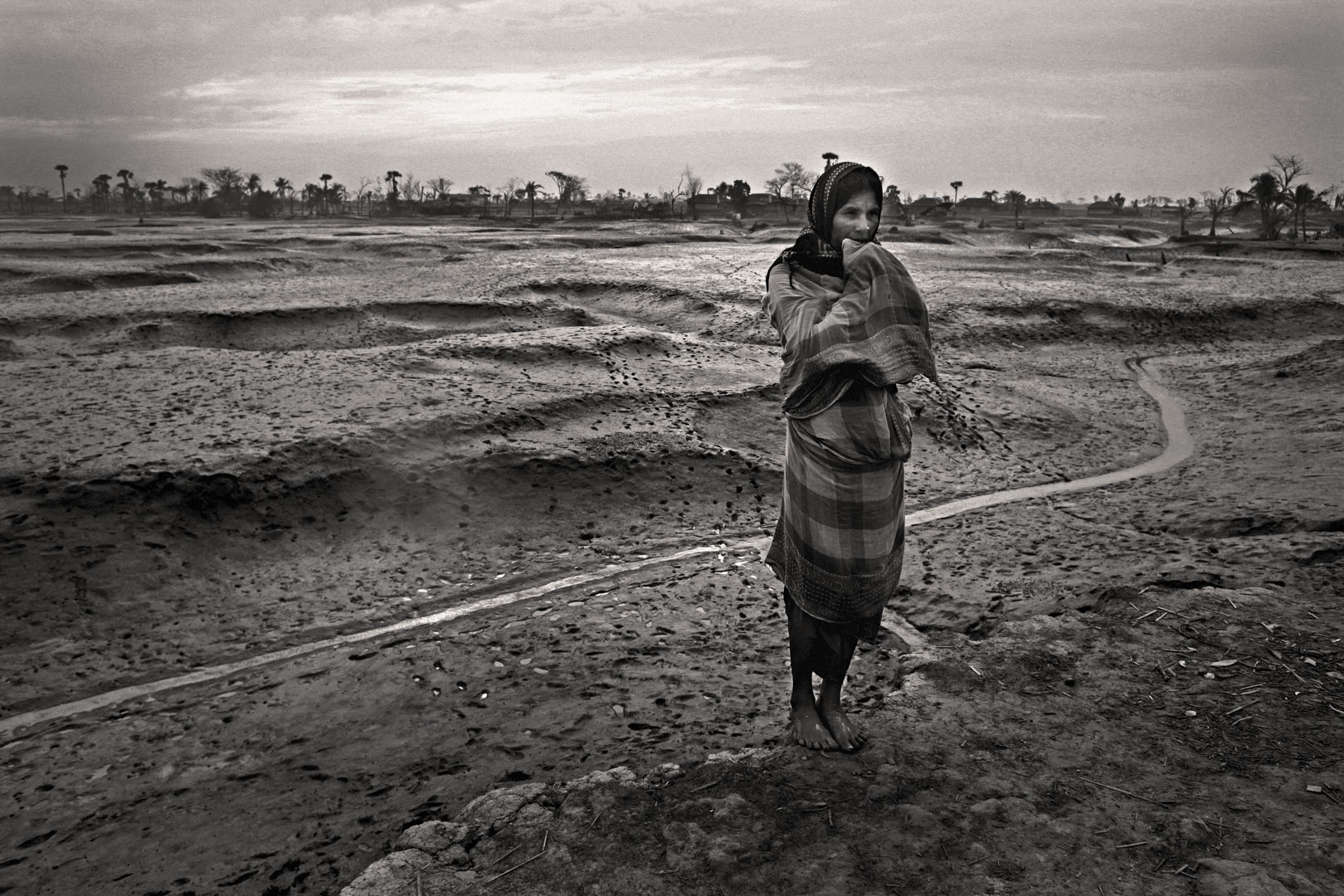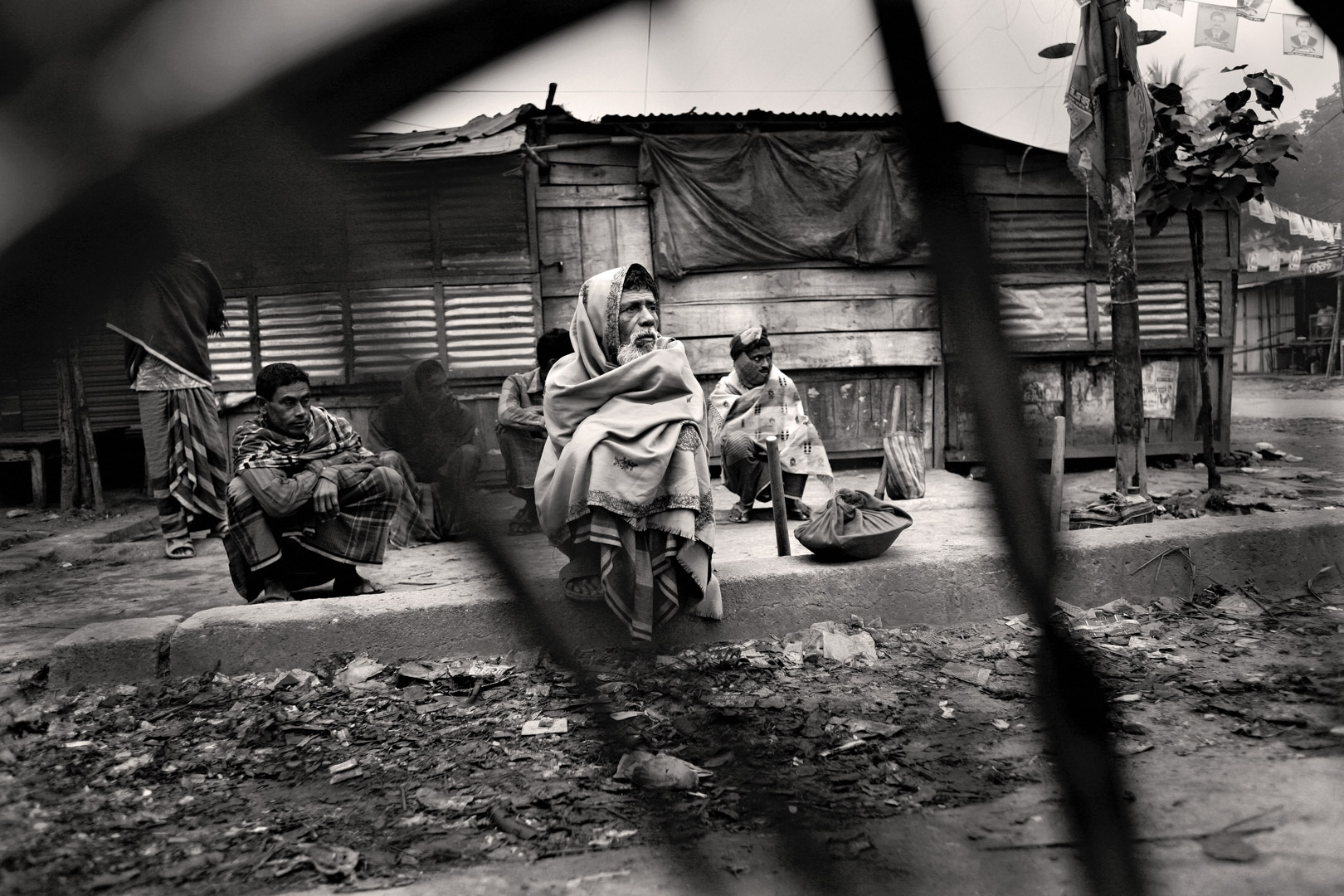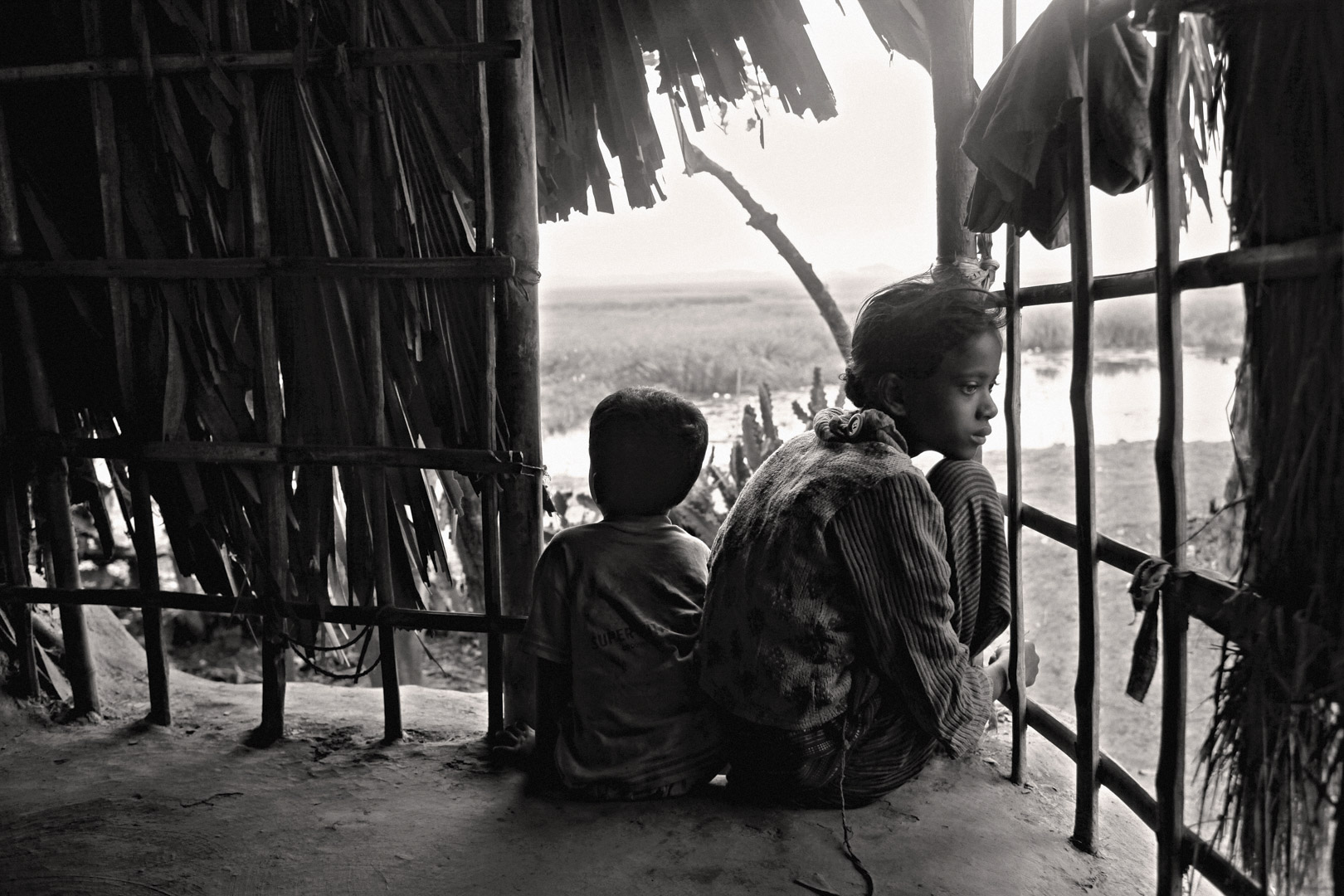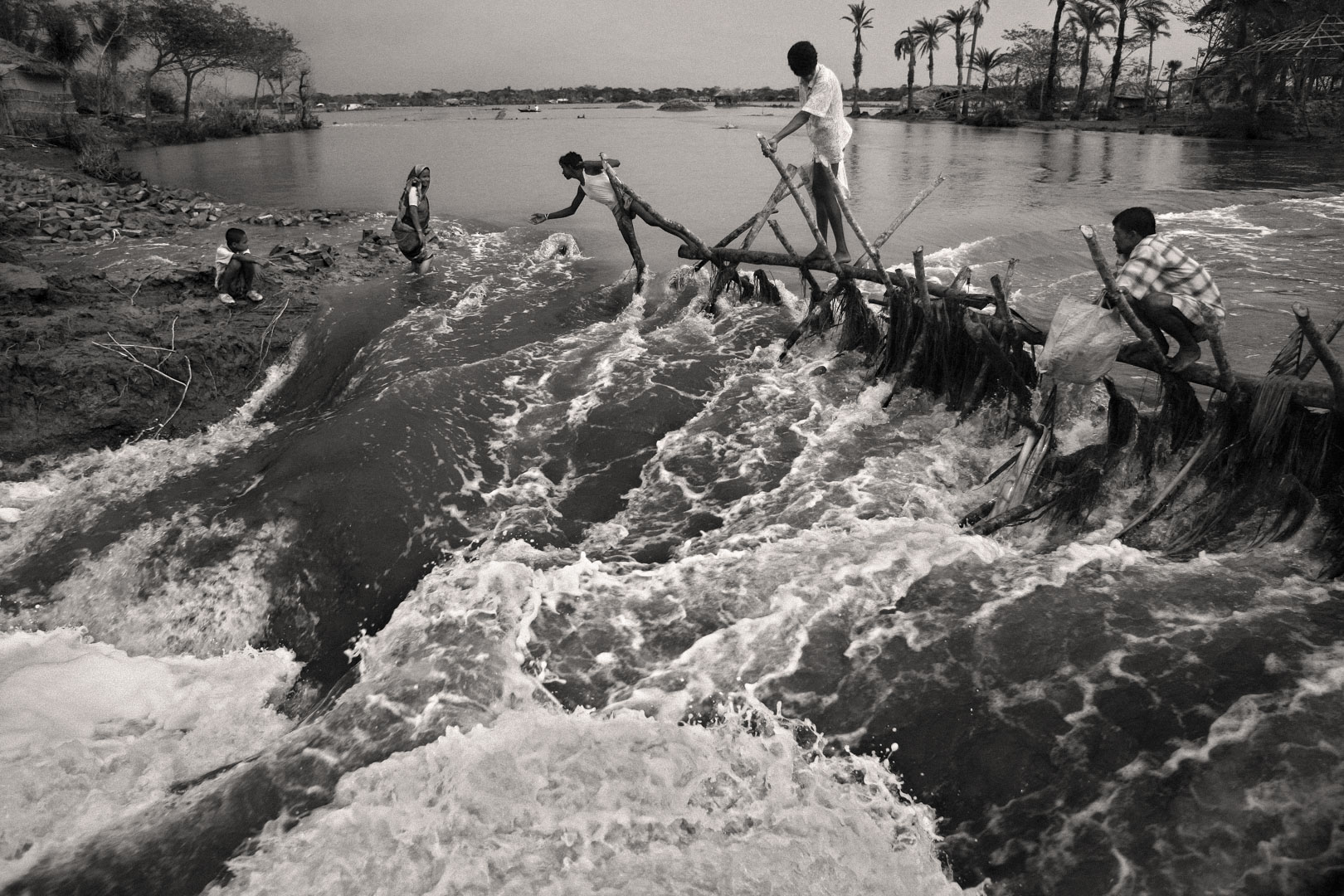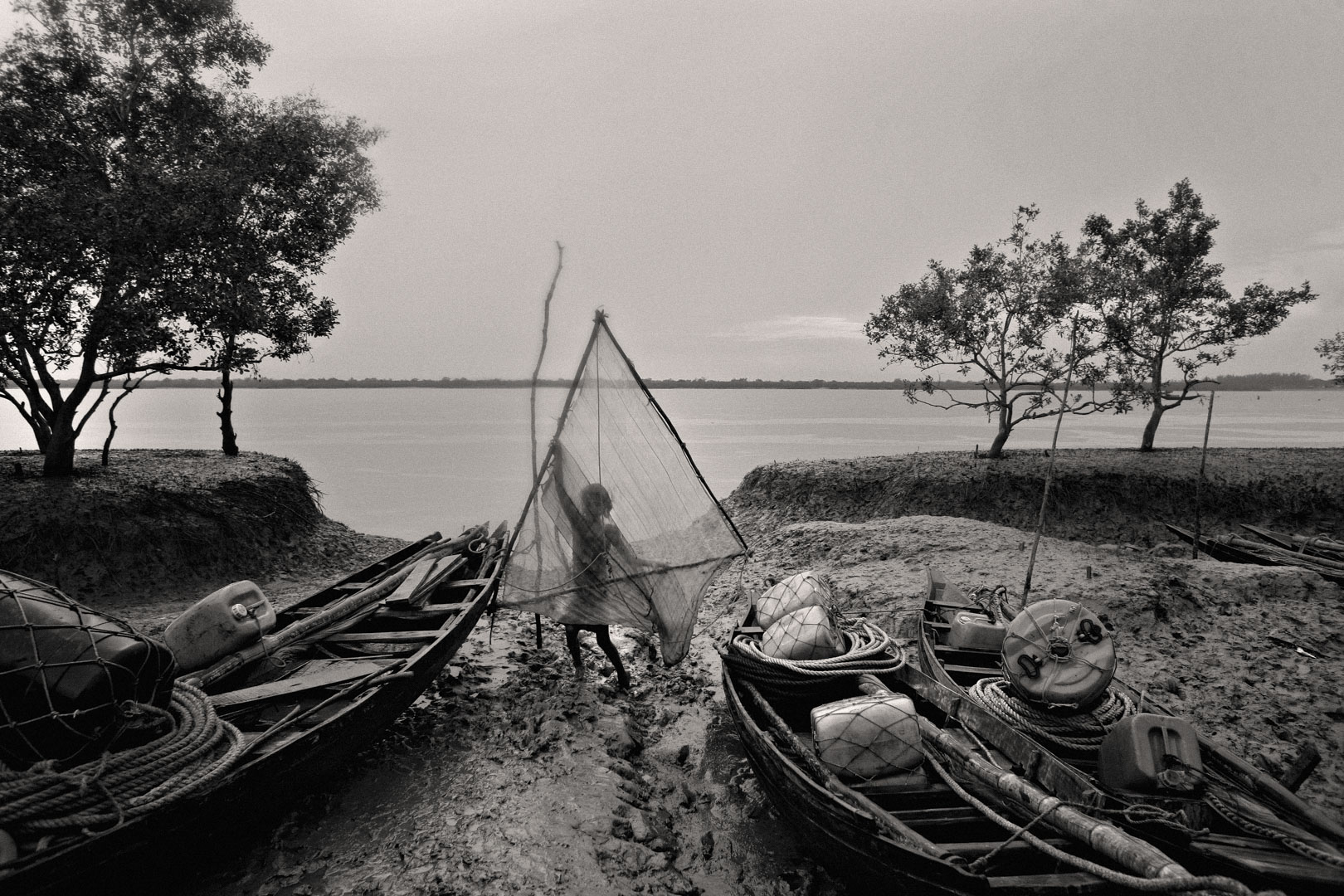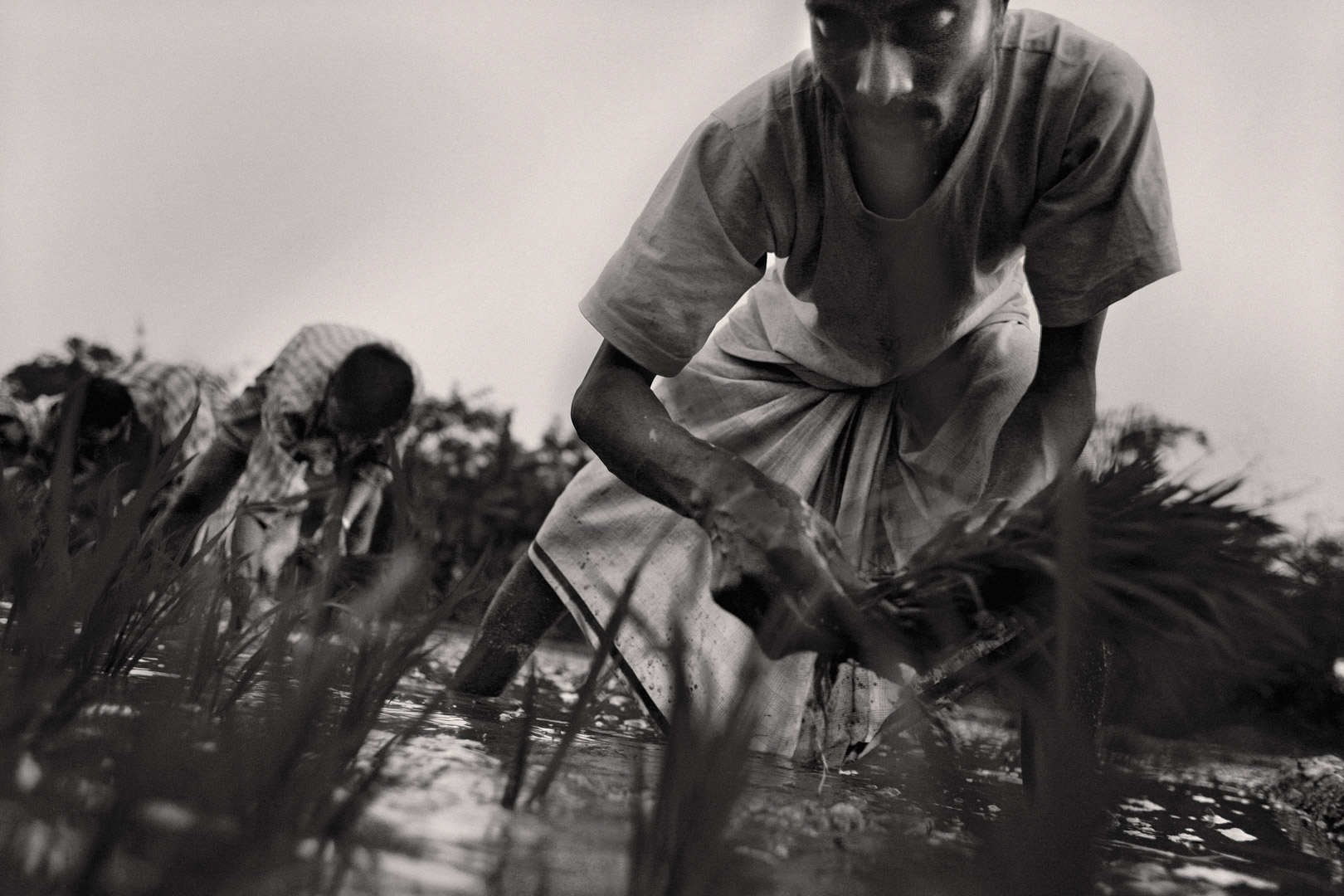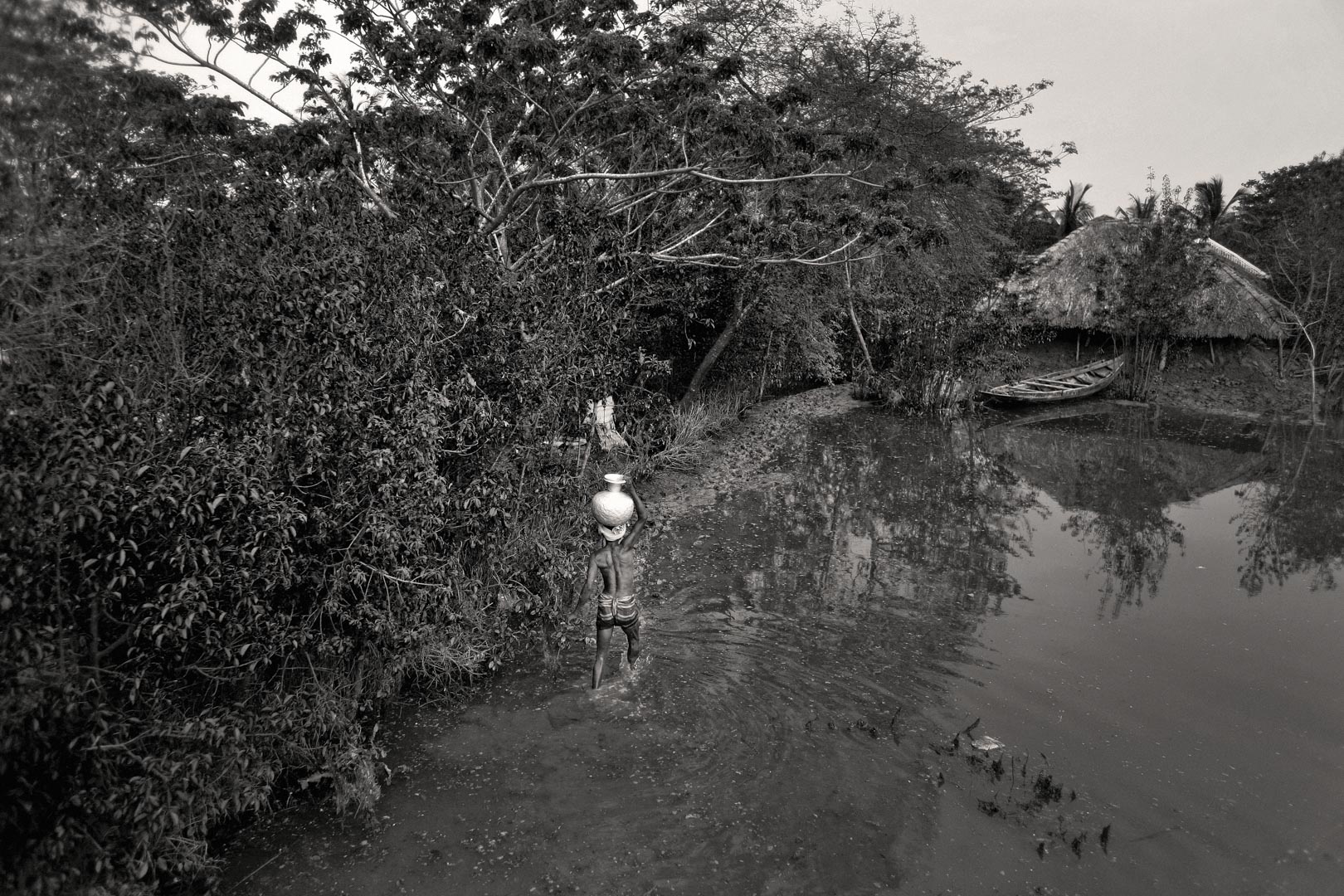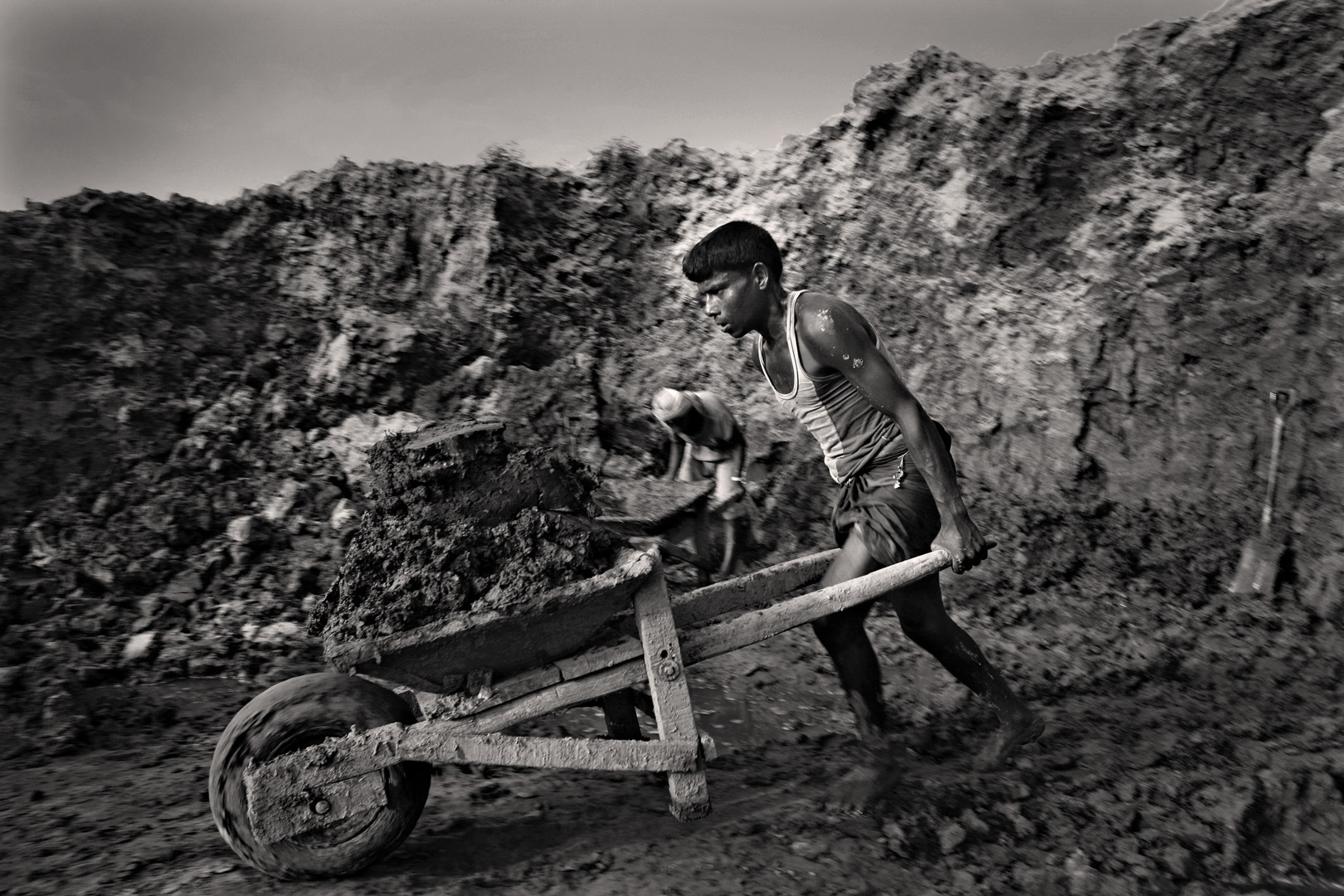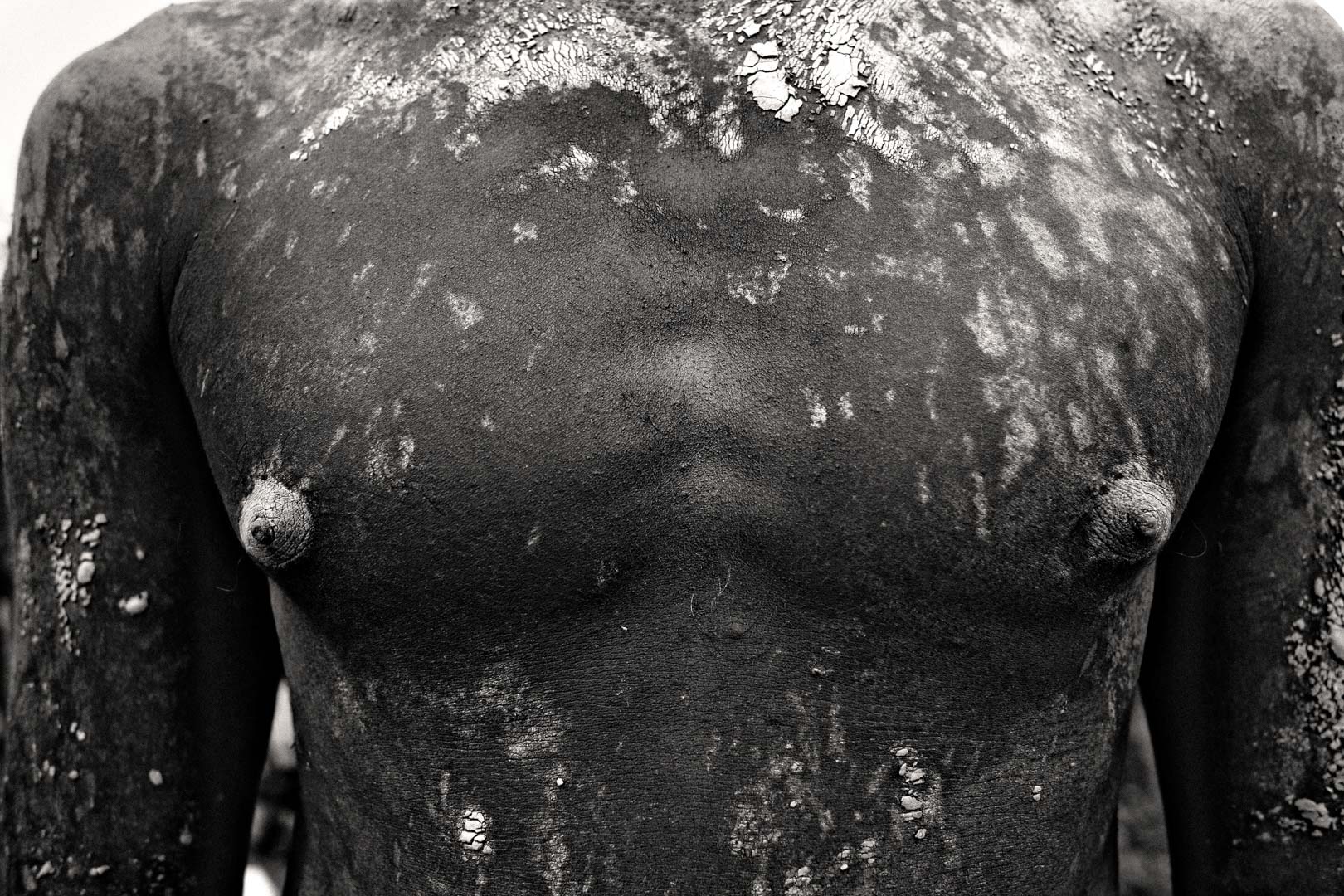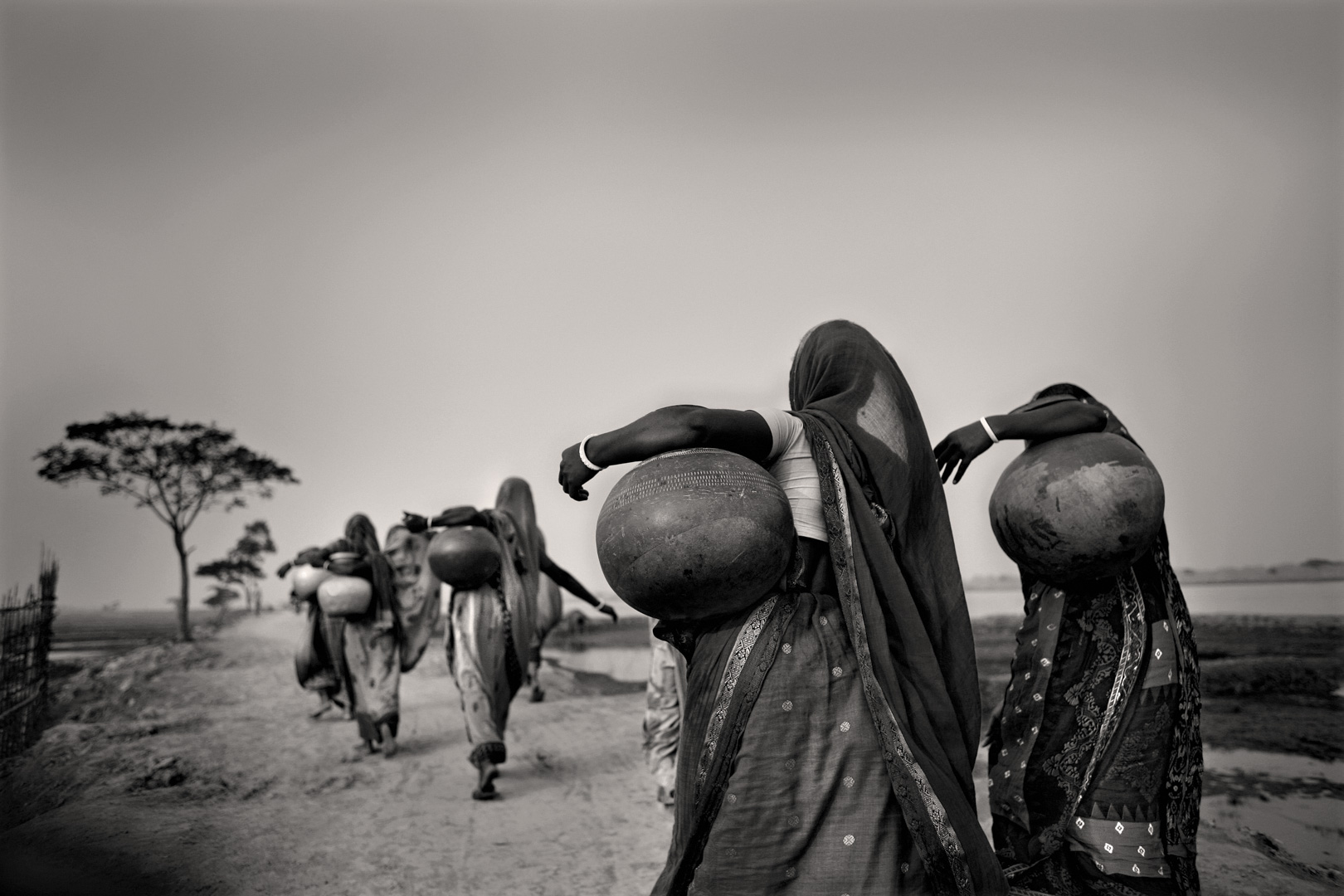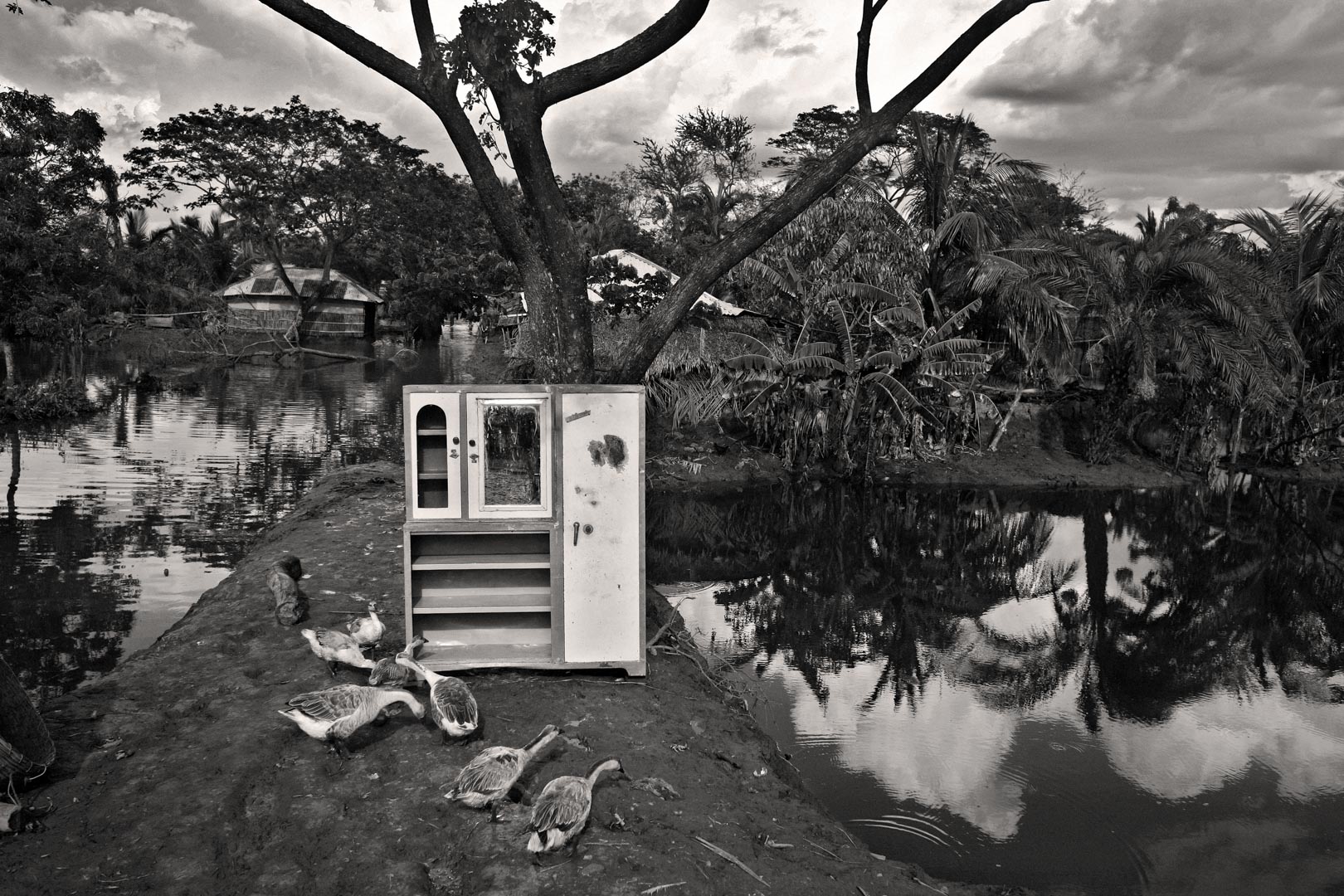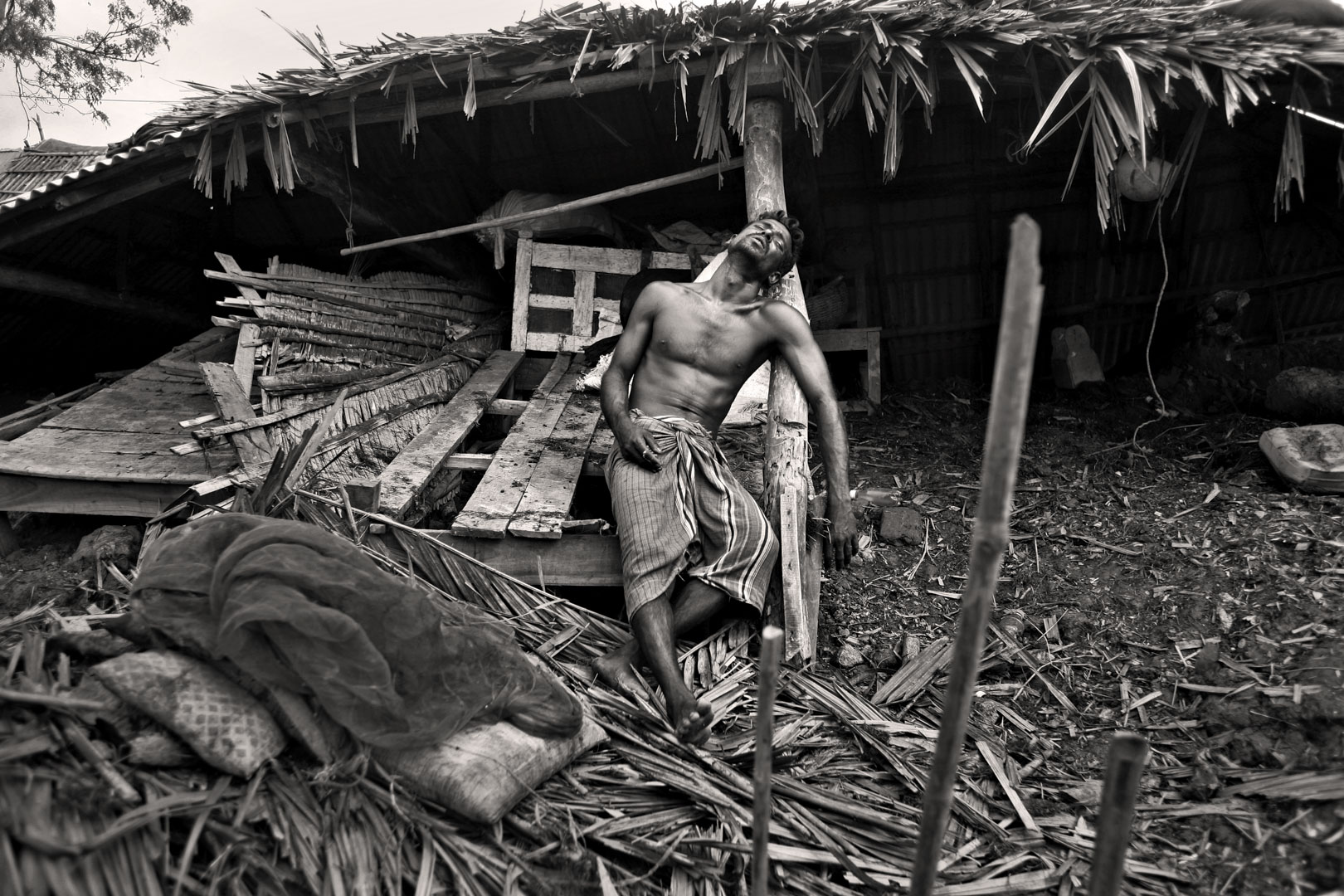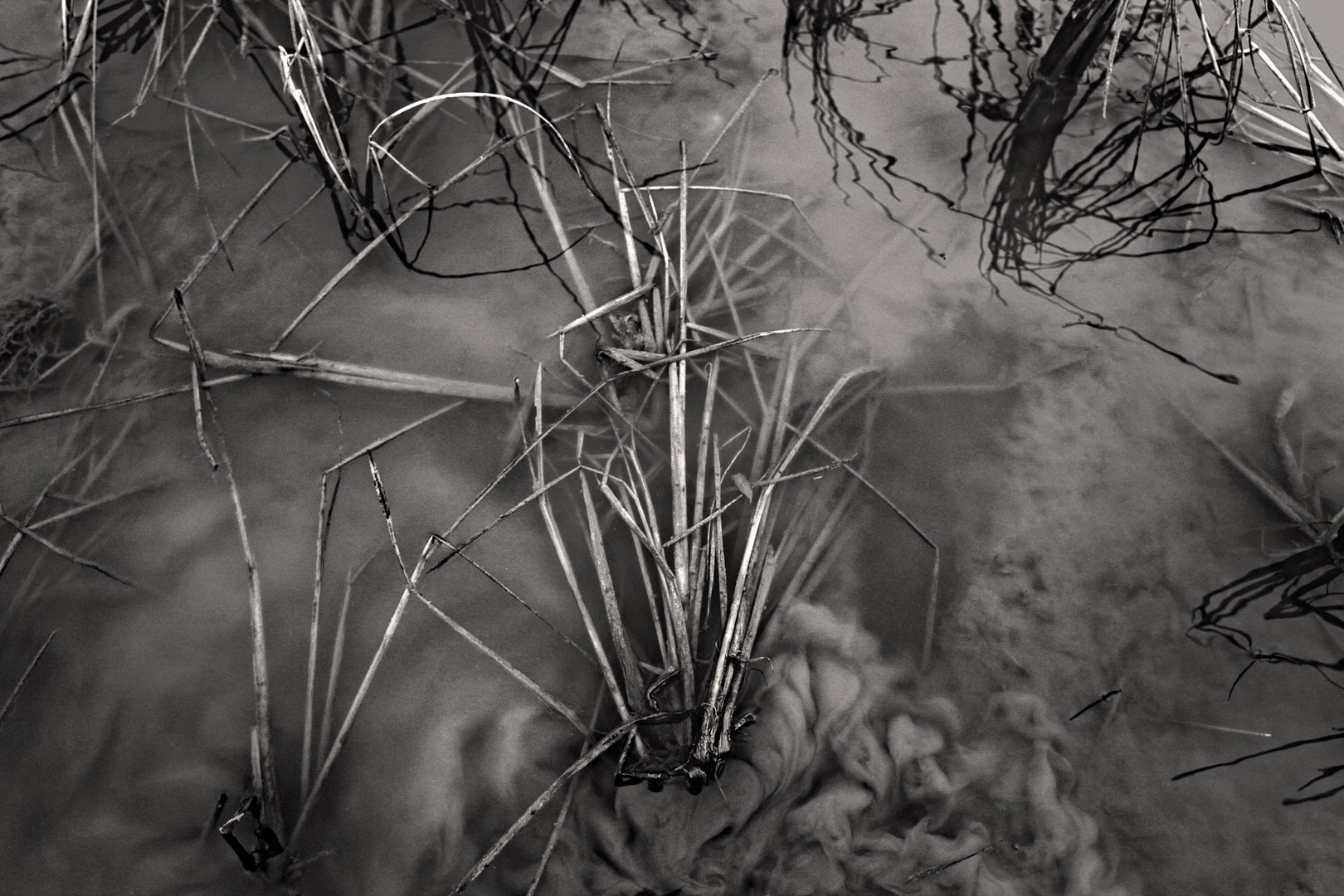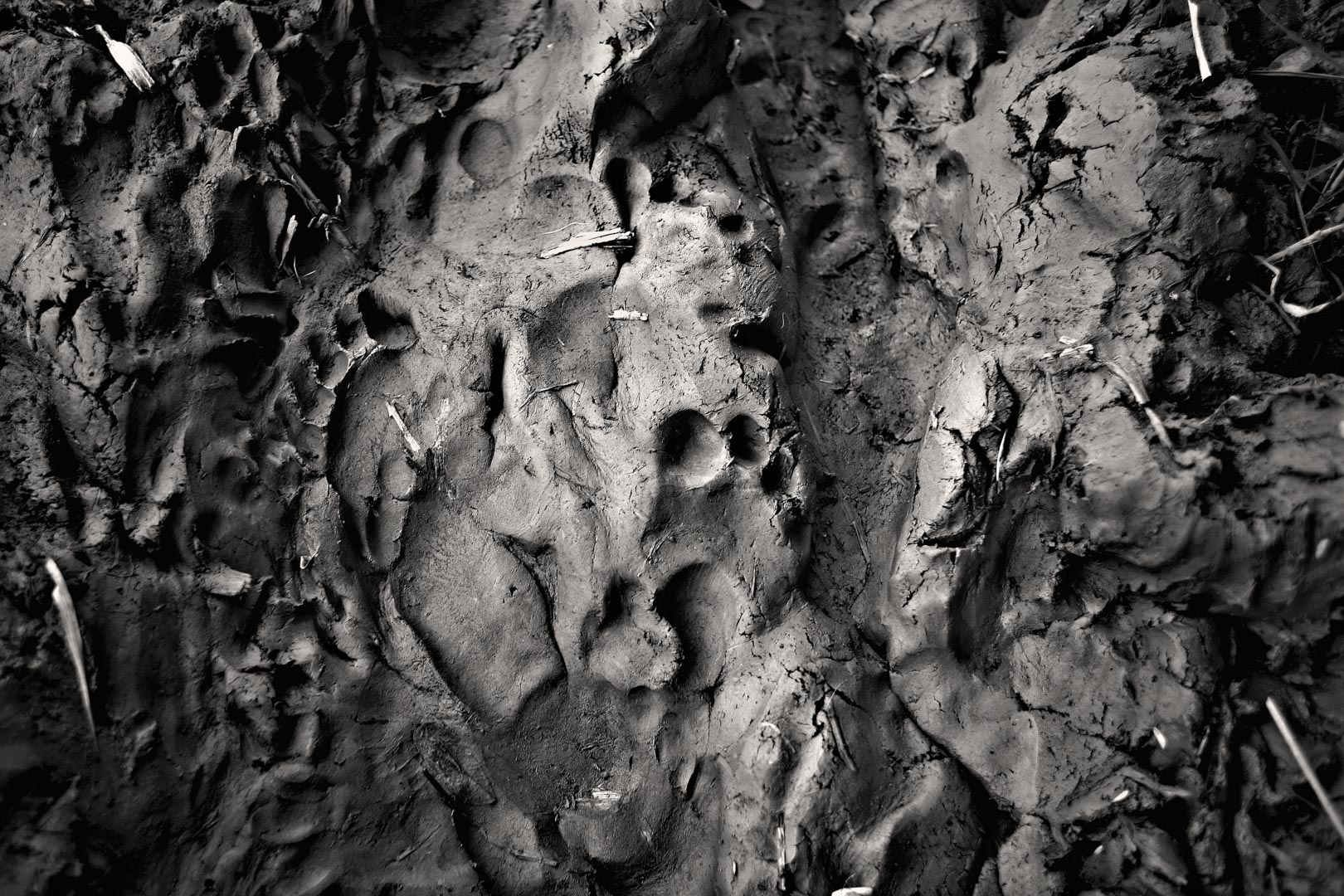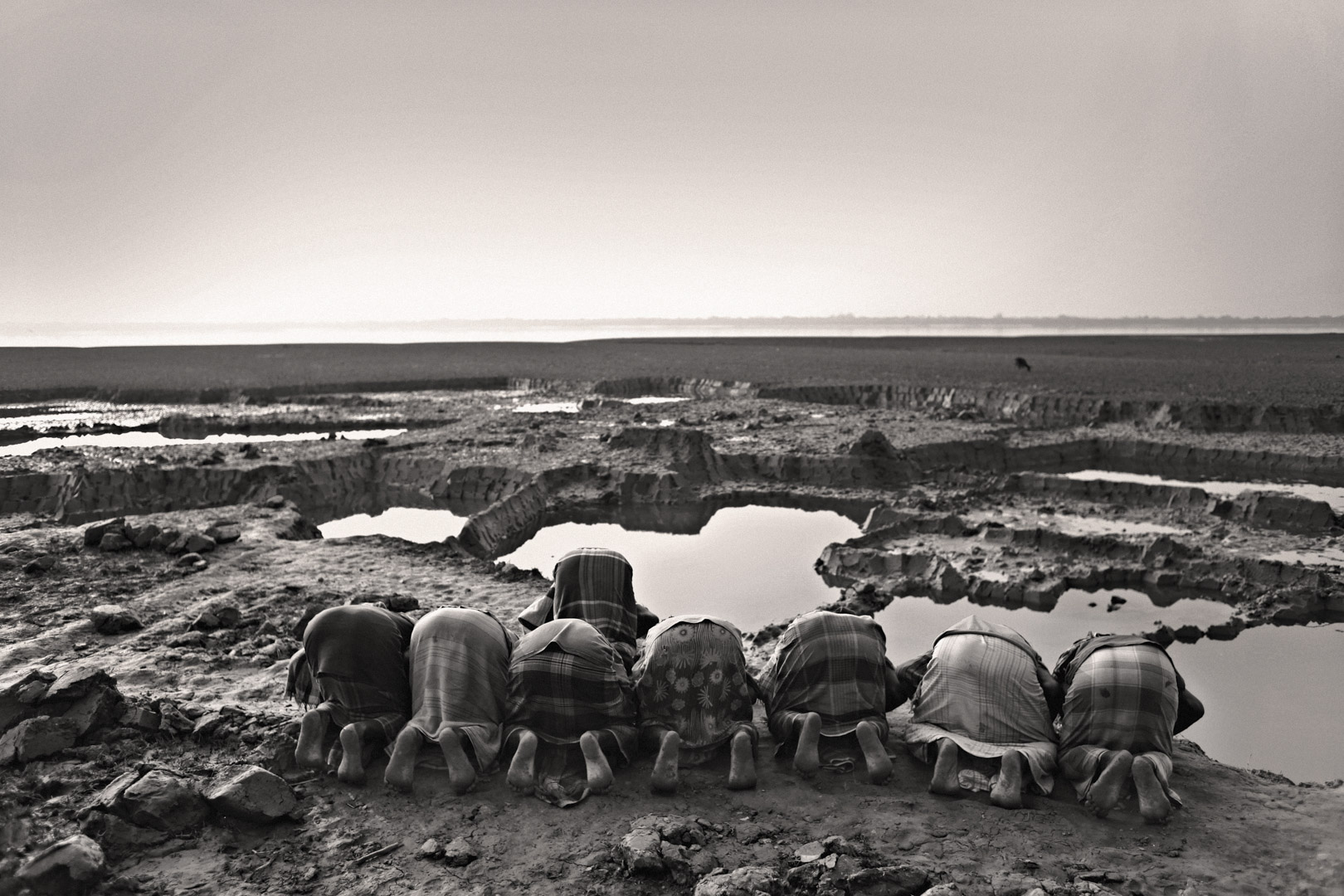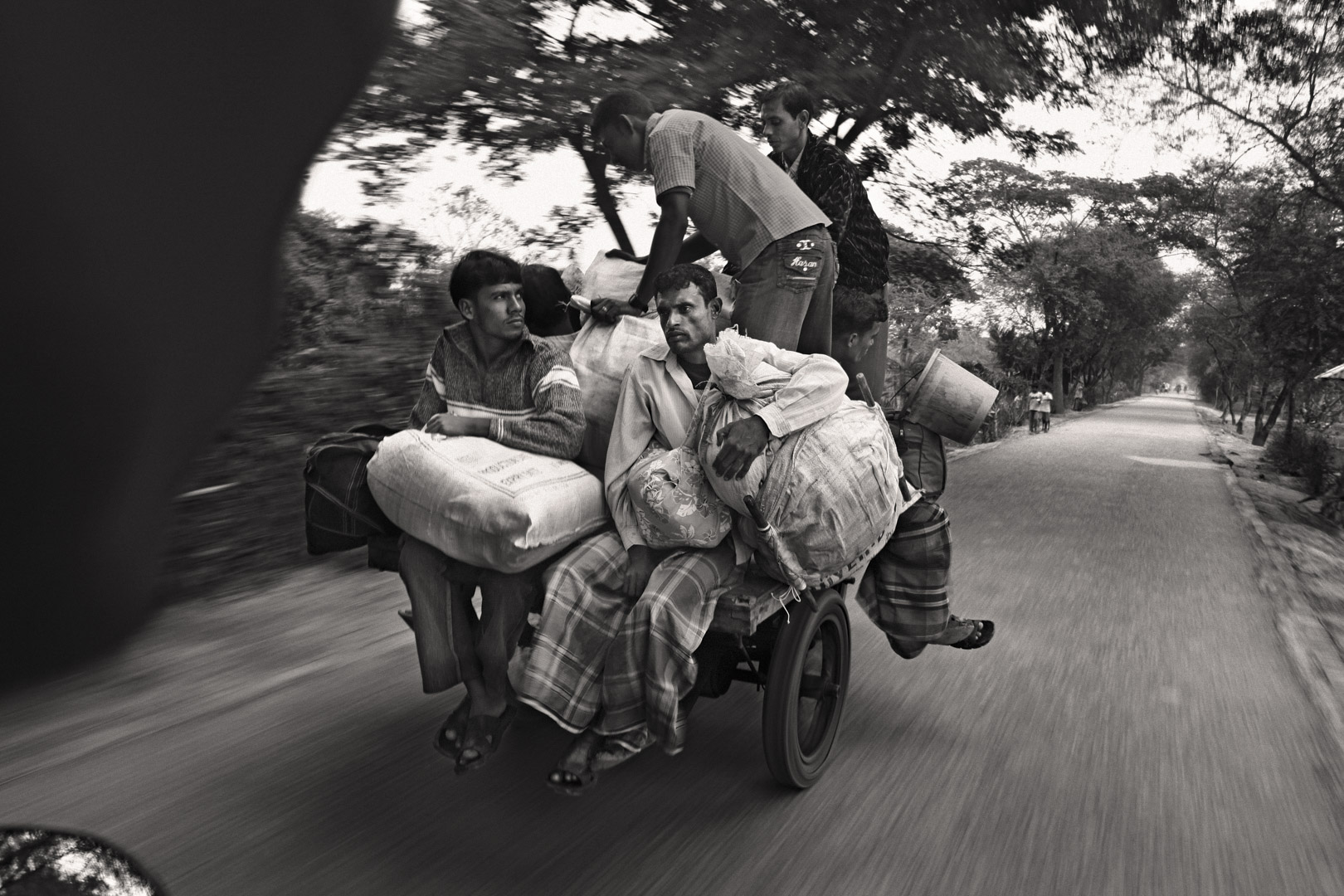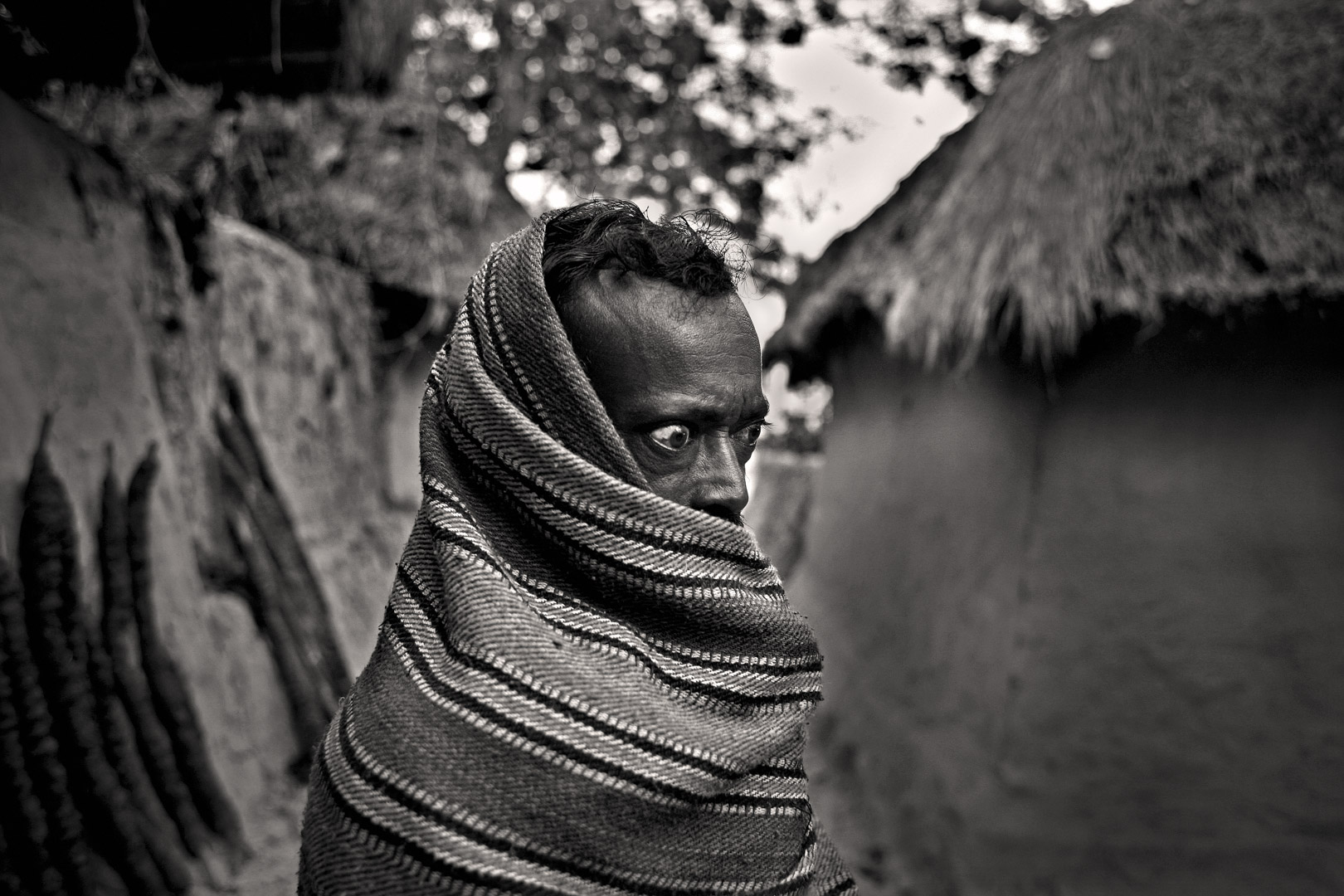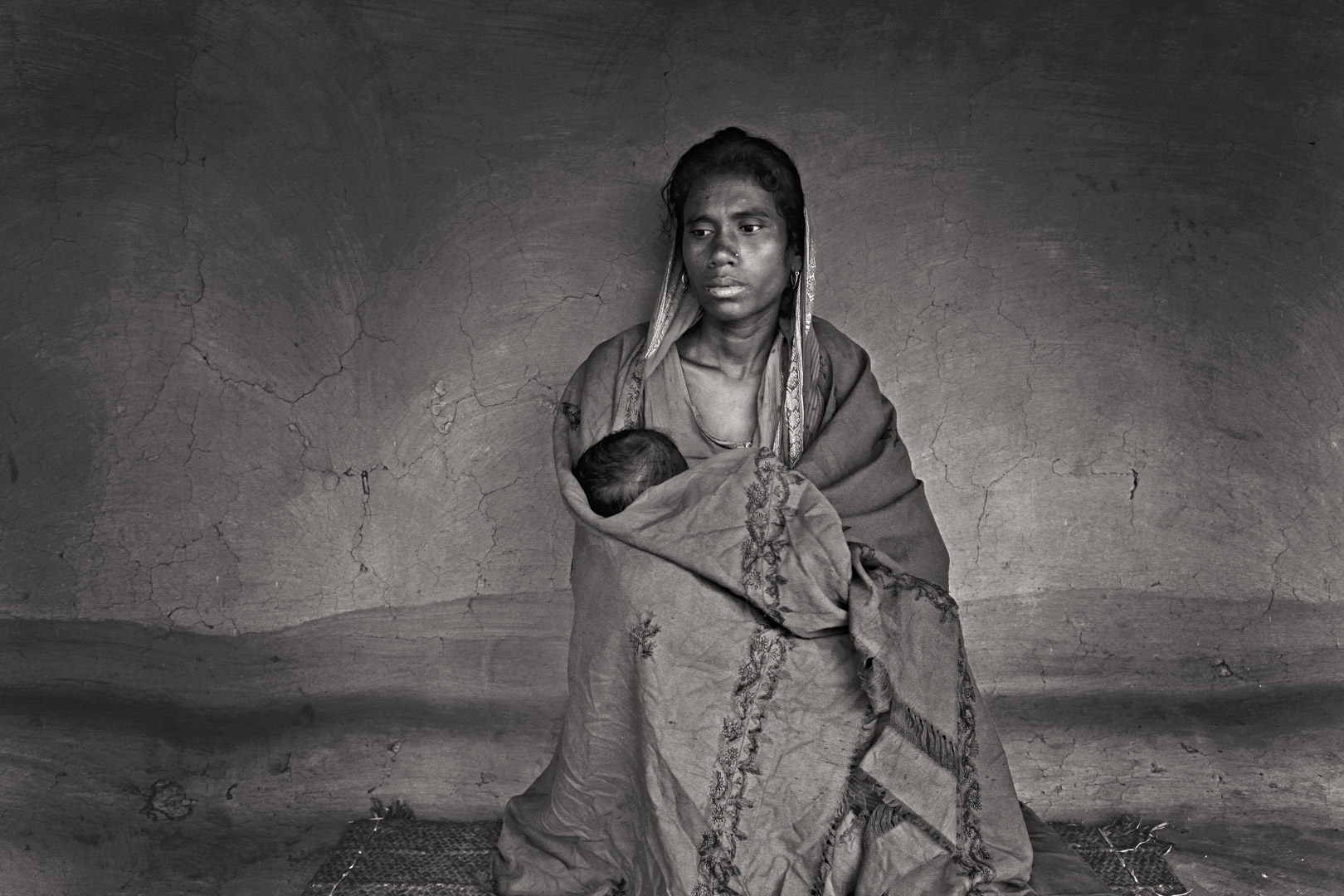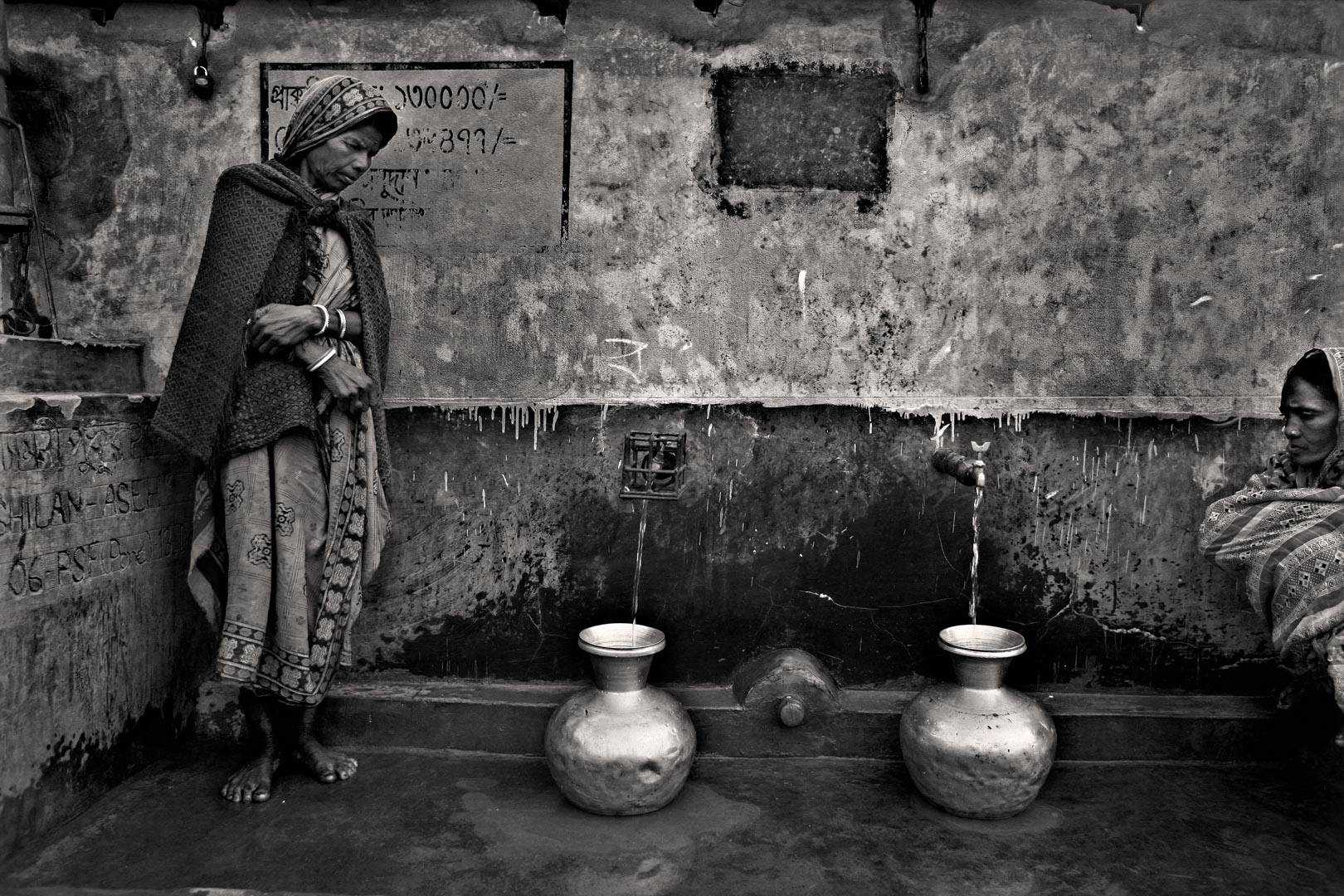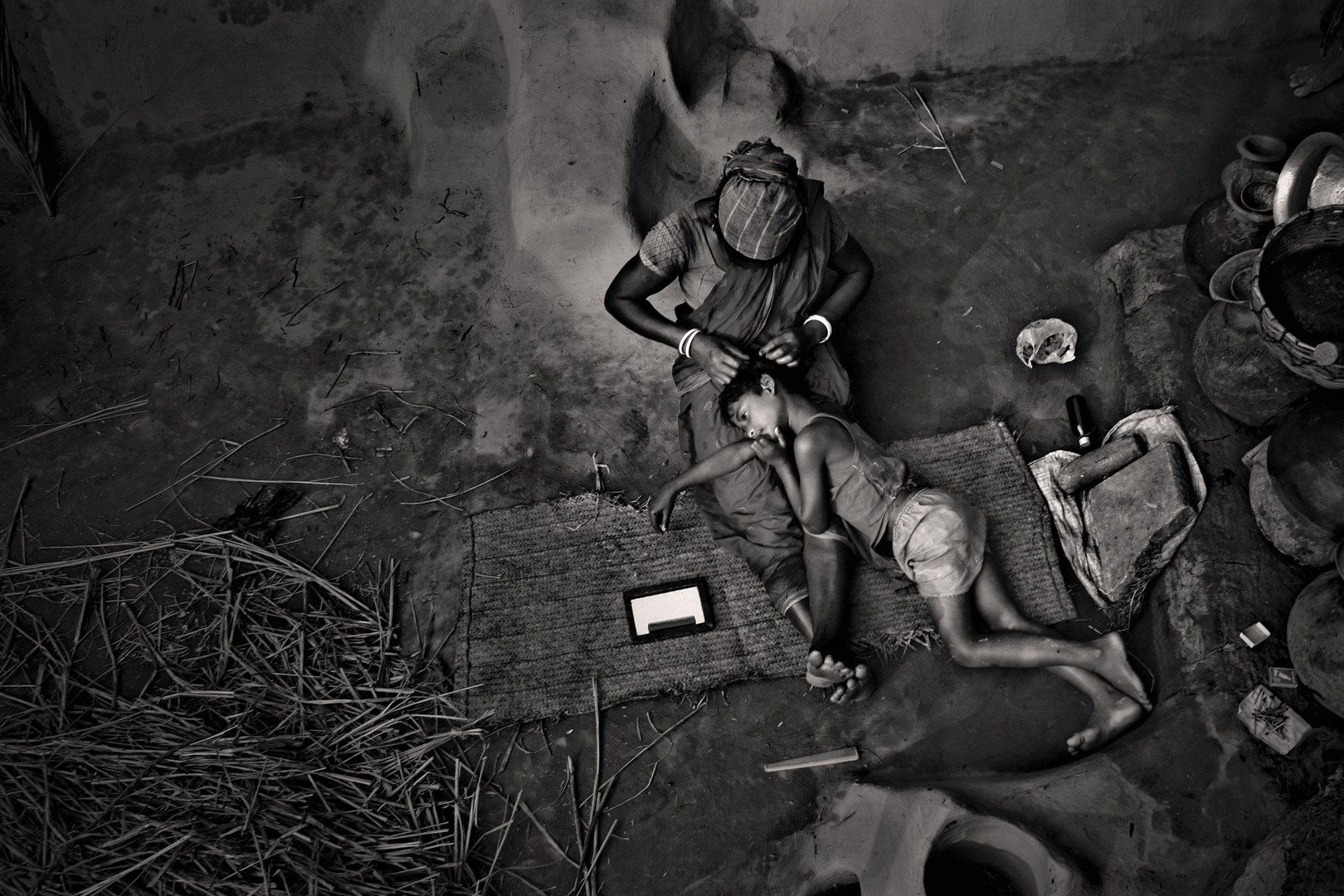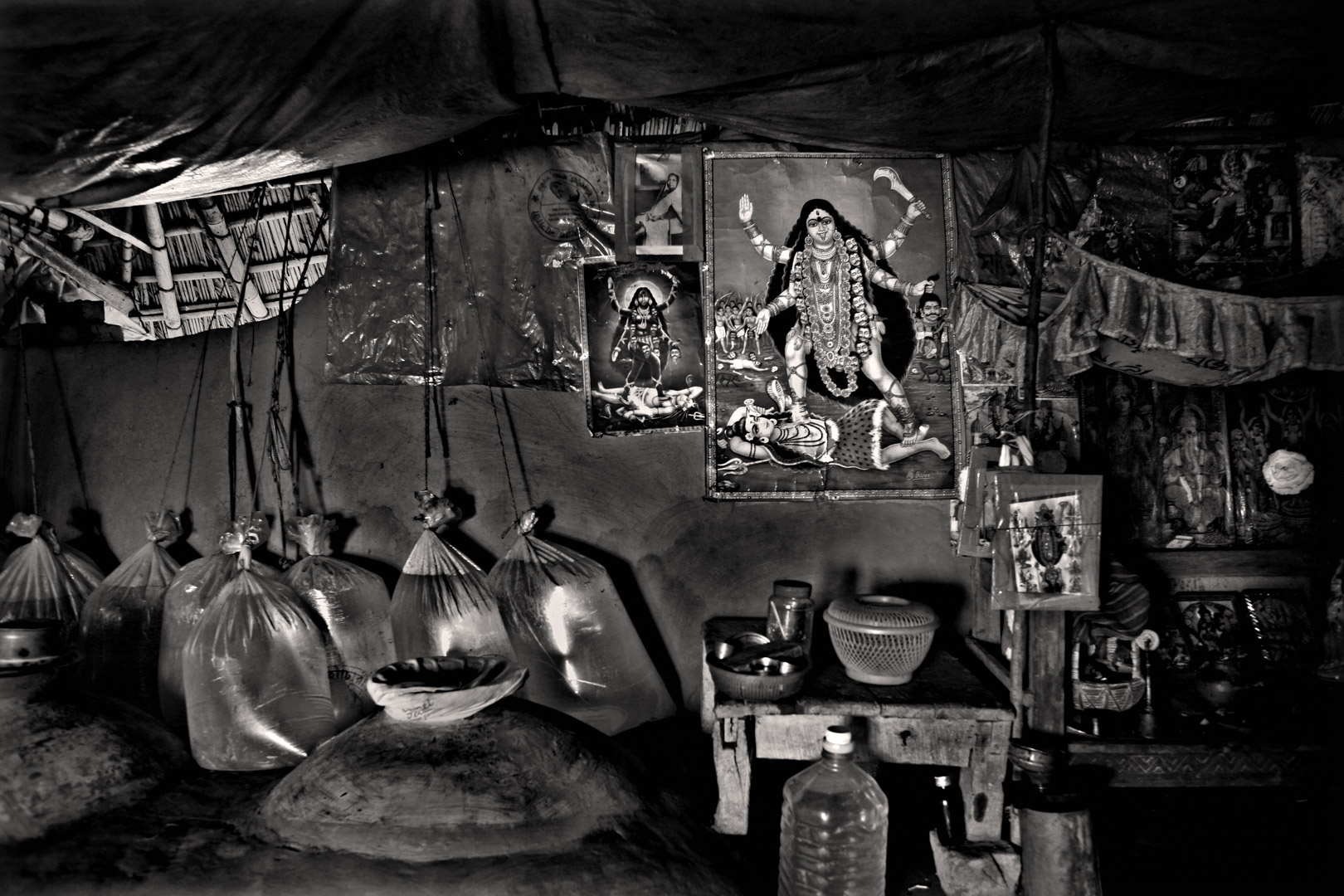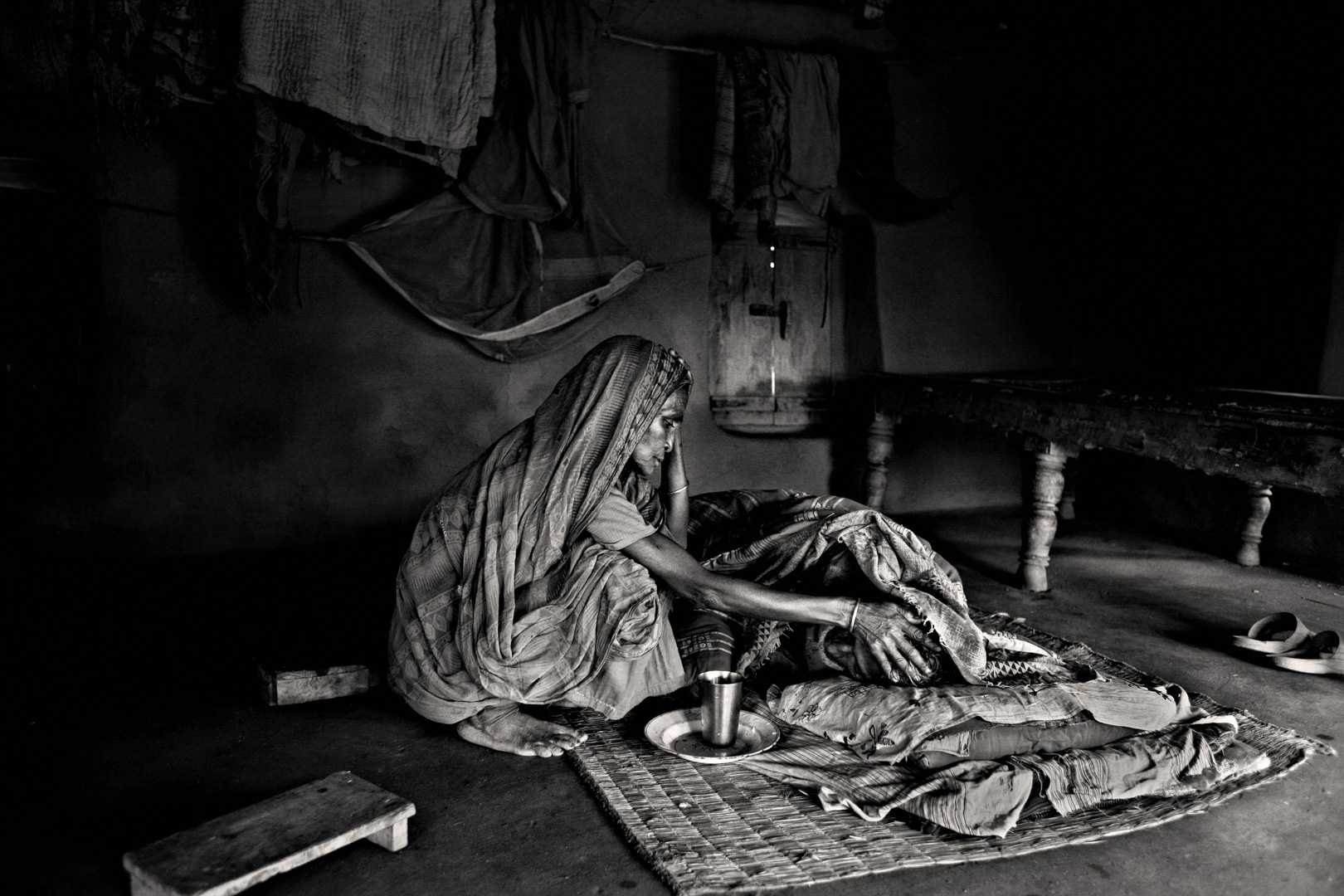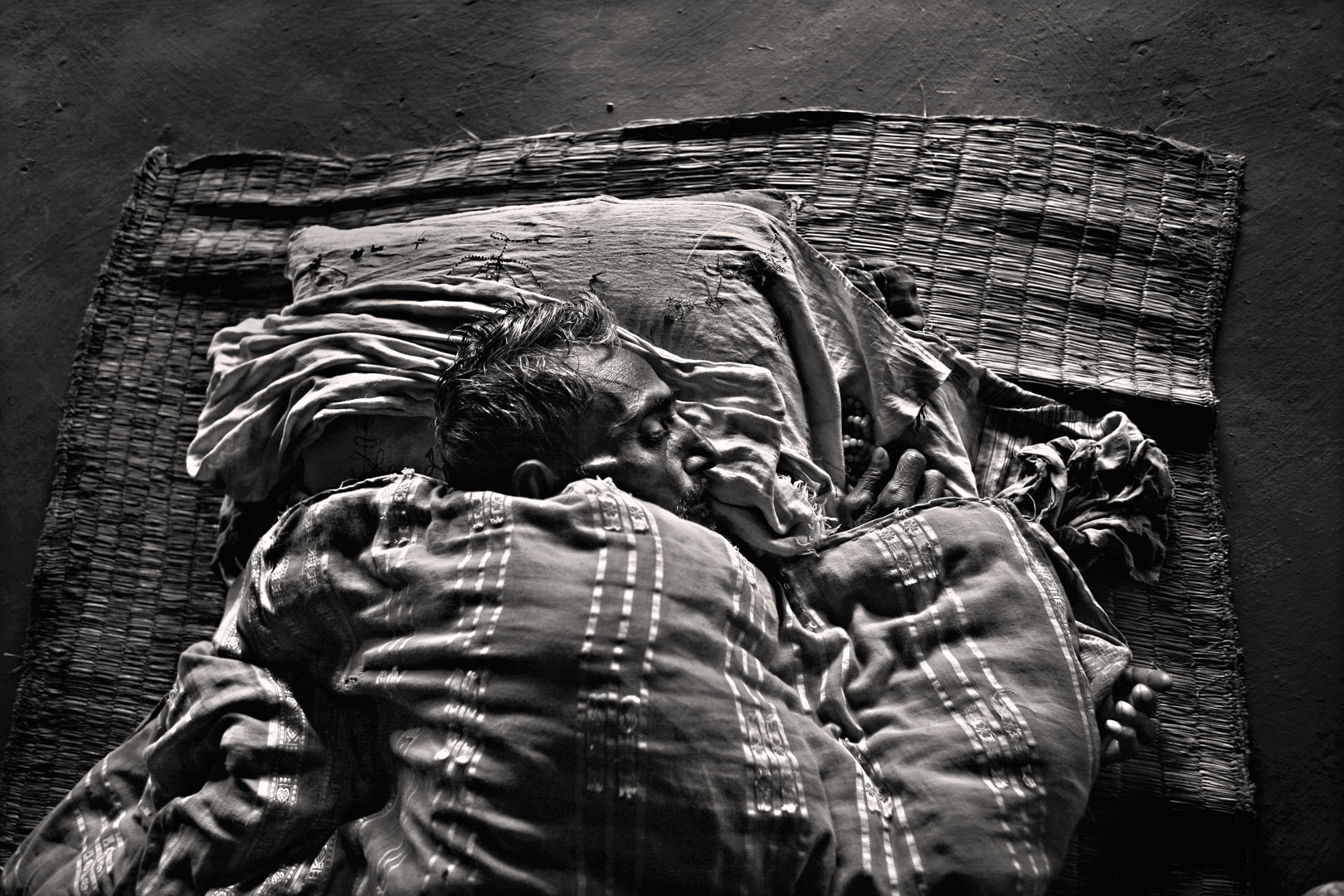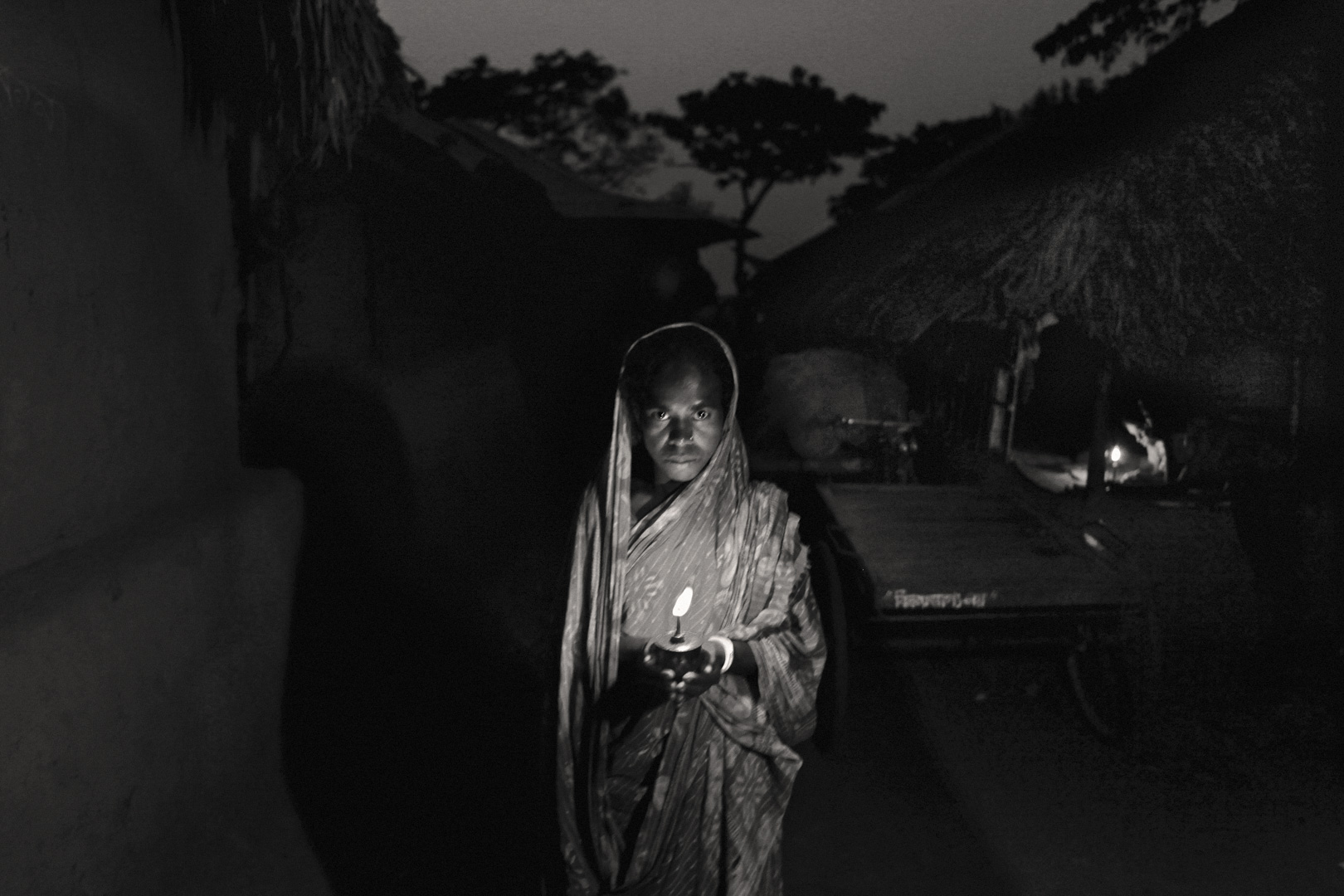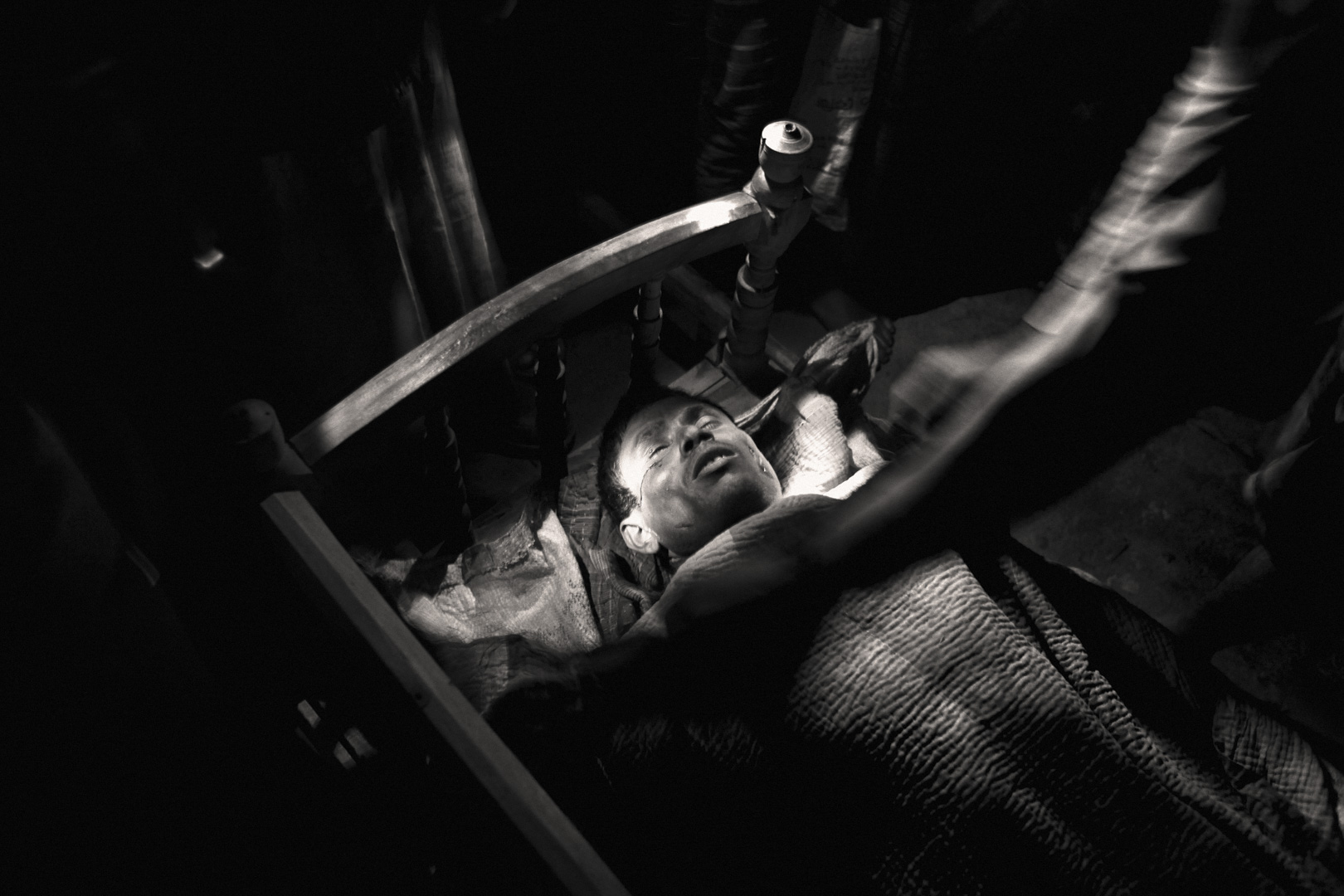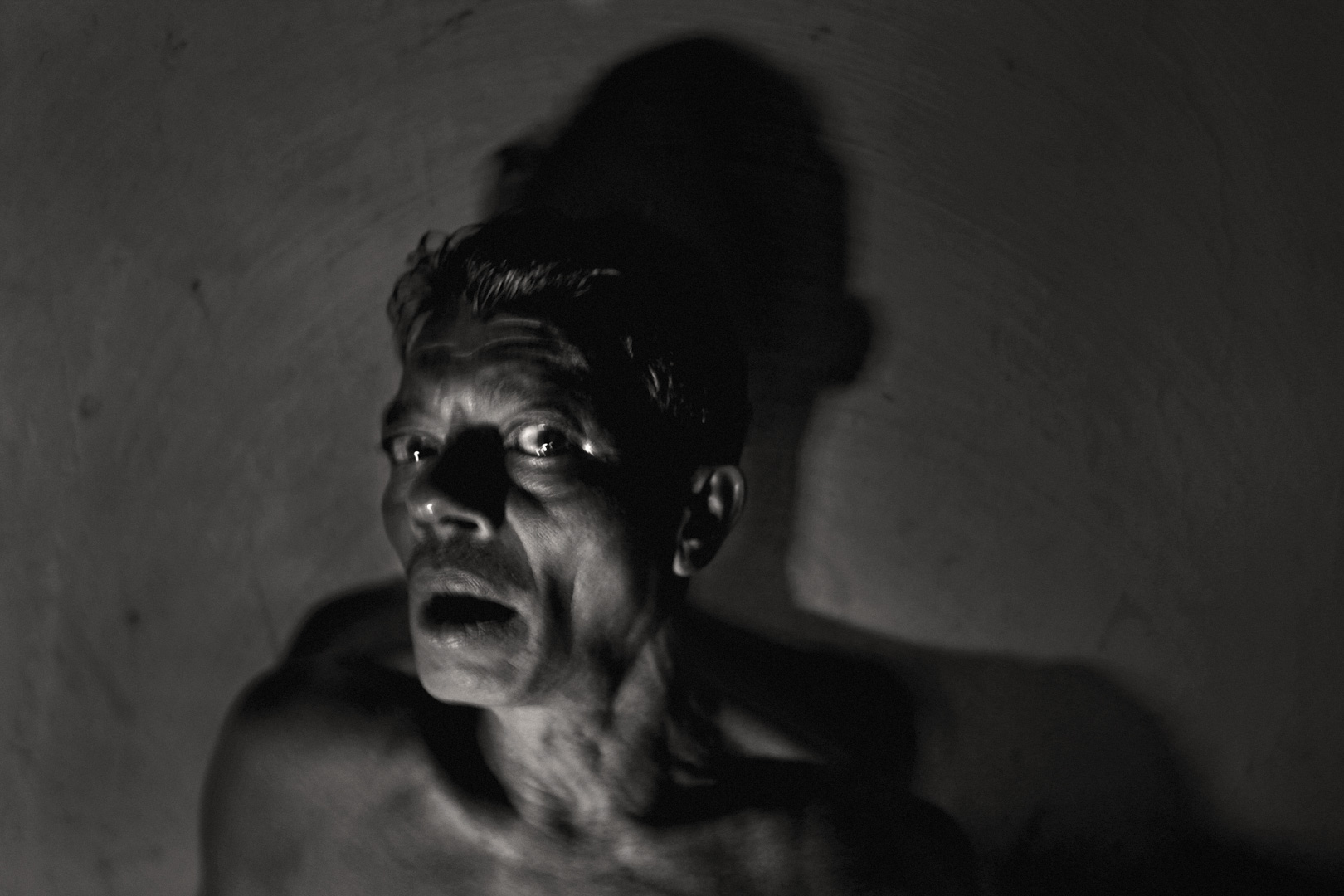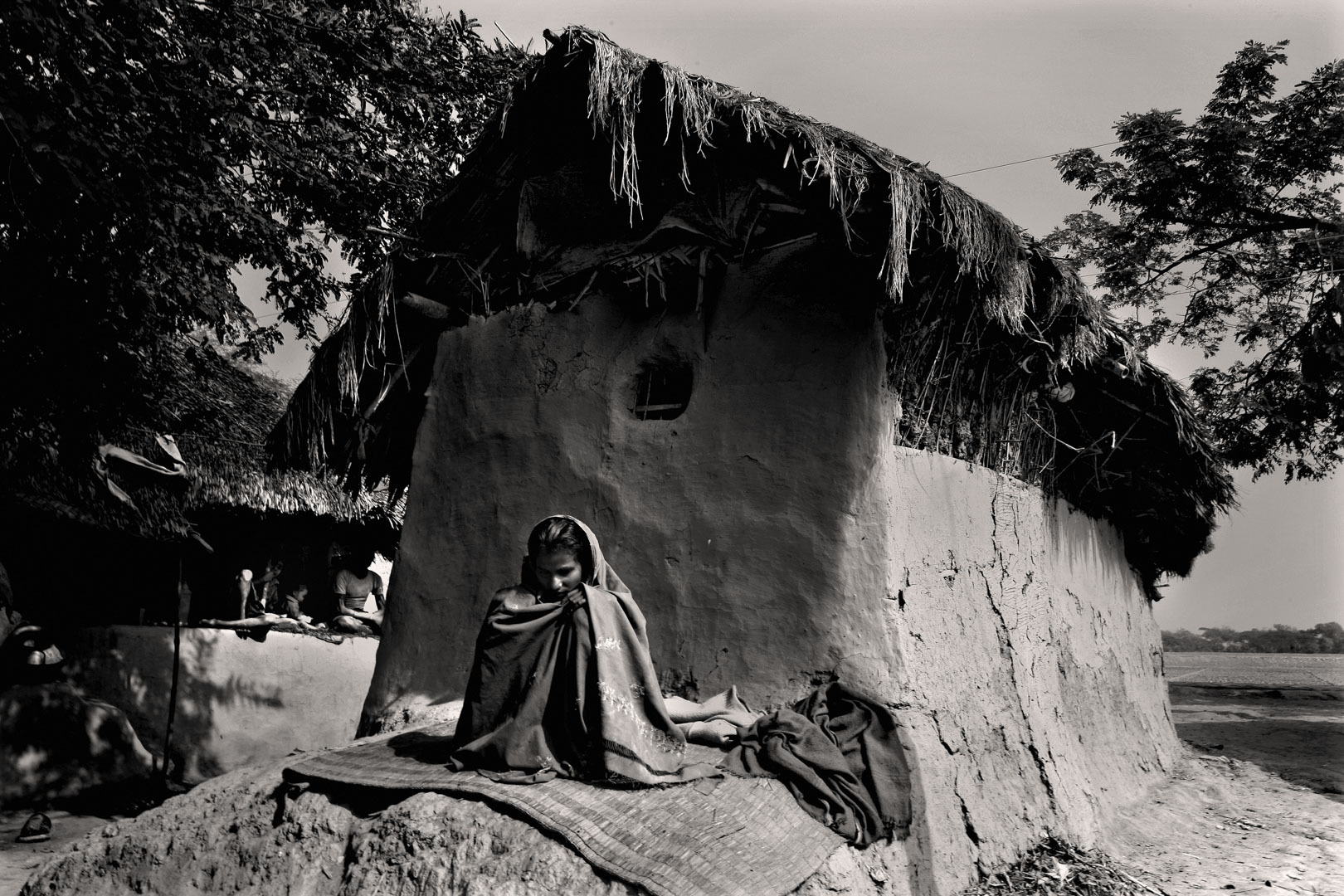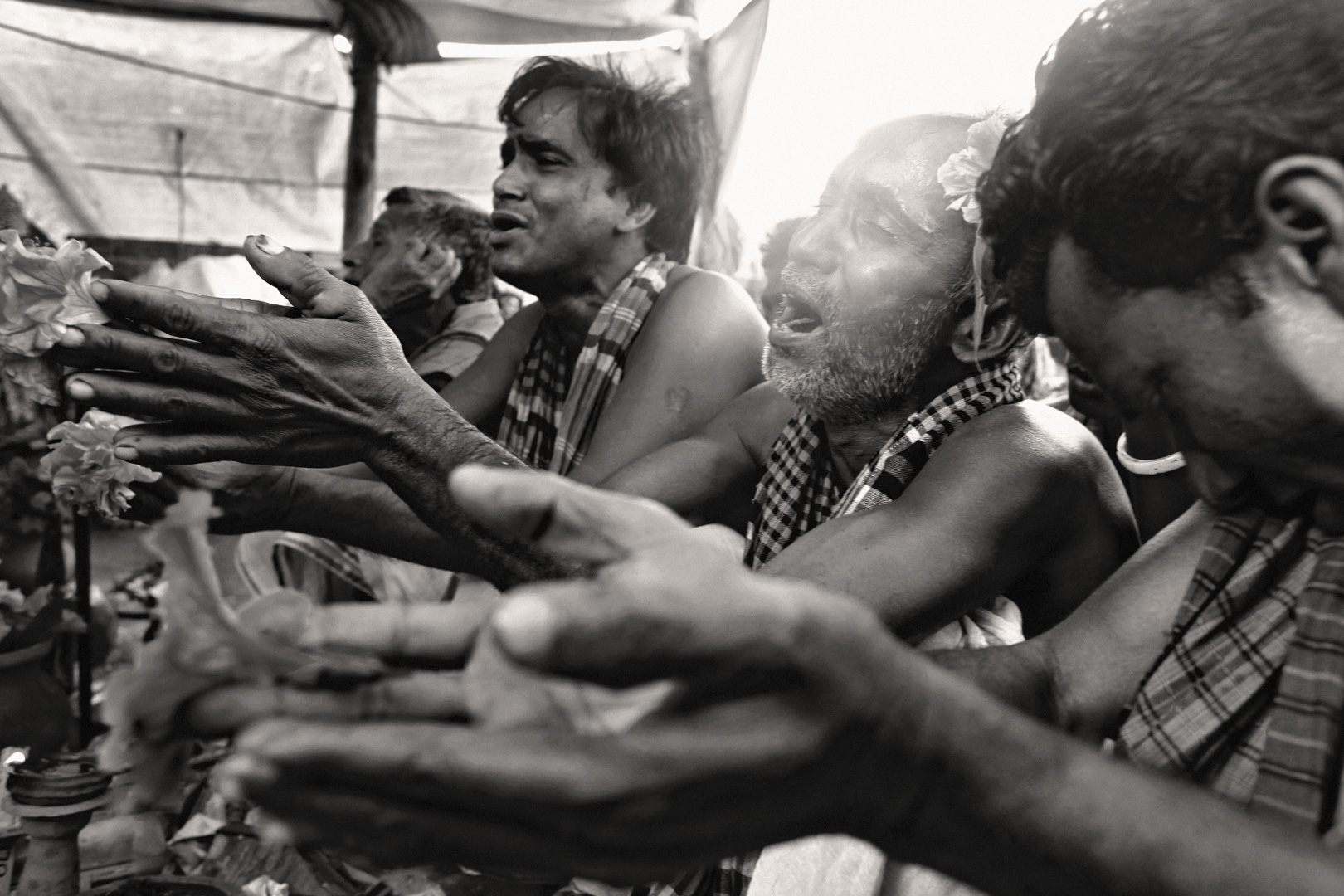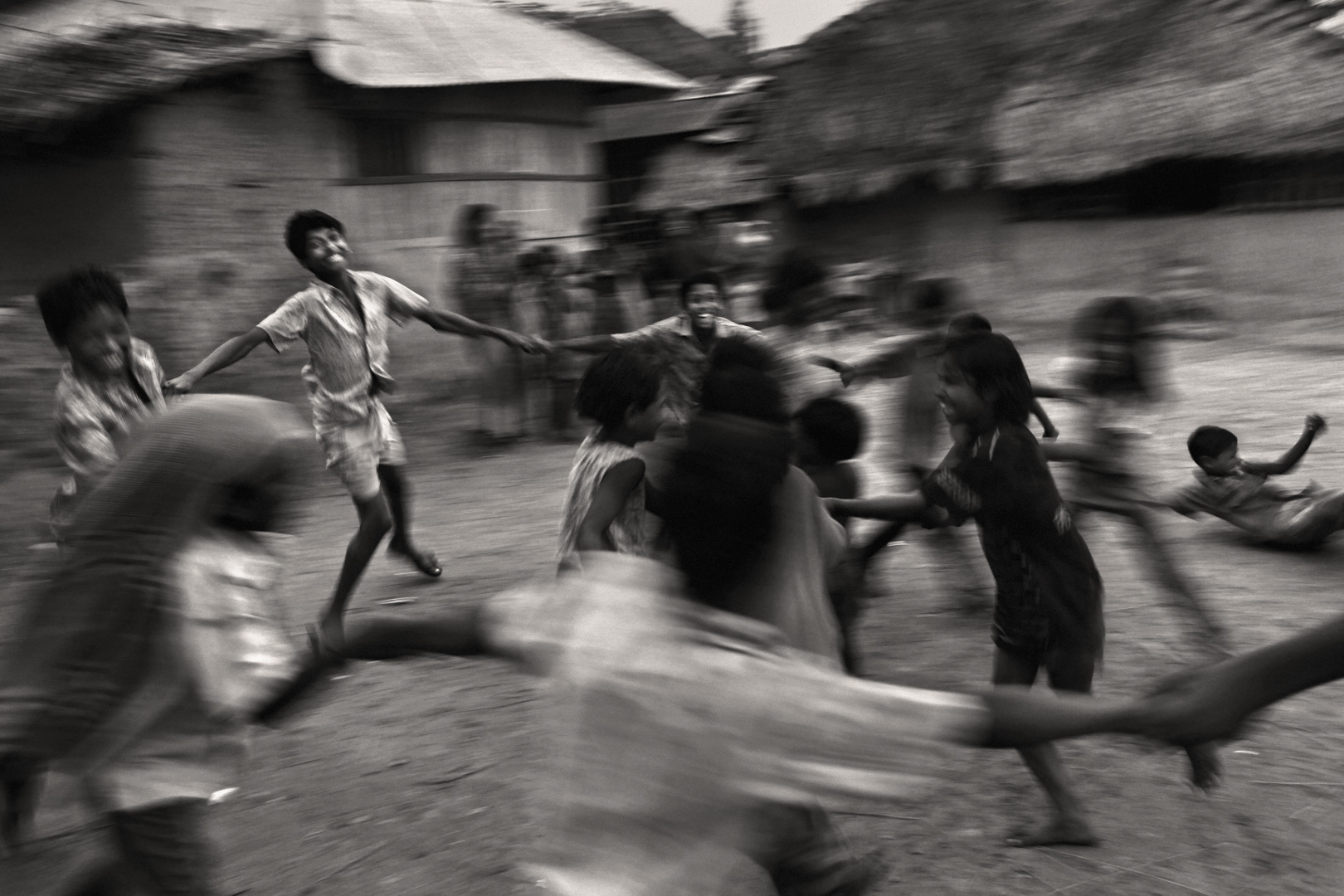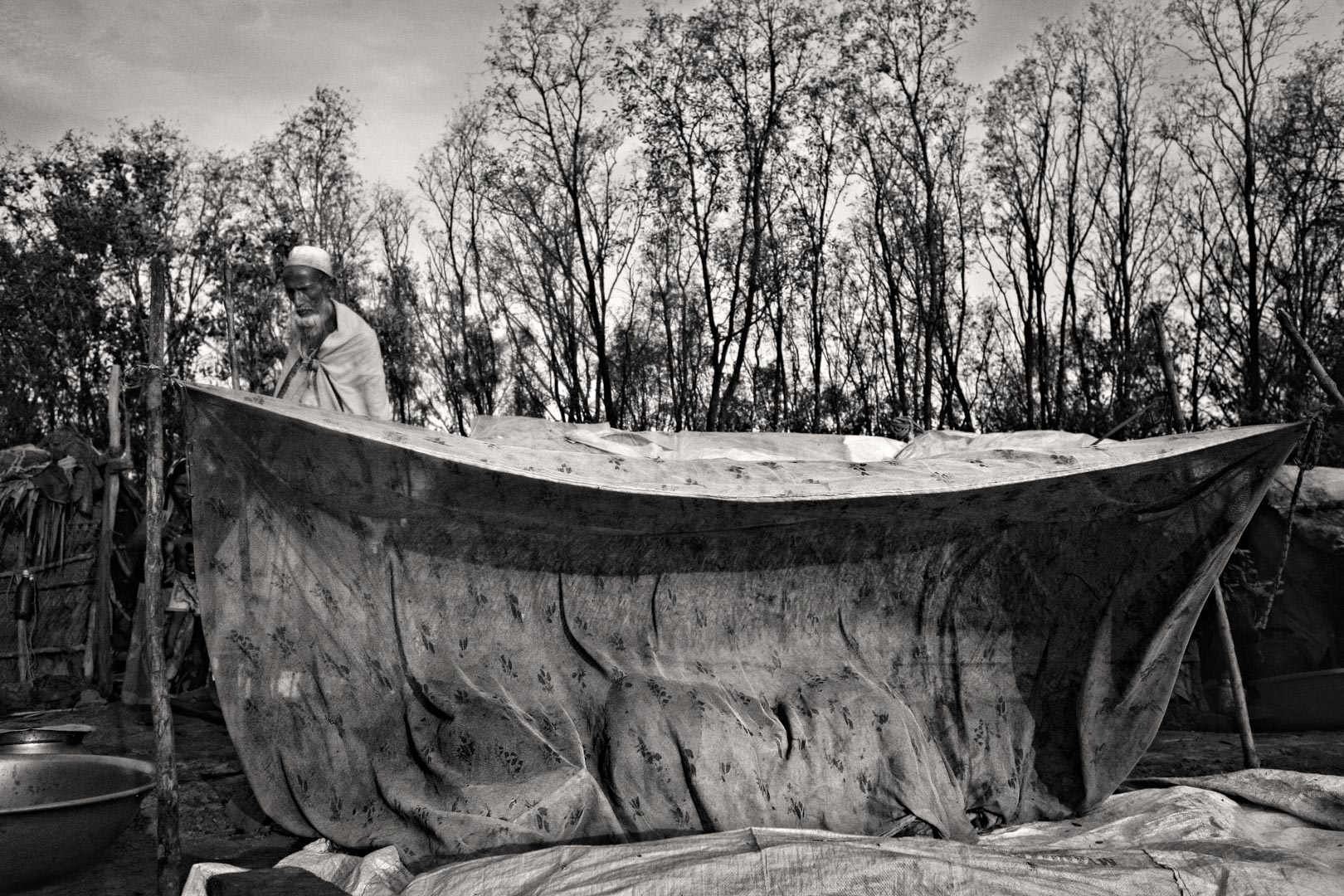Salt Water Tears, 2008
Rippling sea waves, dried river beds and endless fields. Water everywhere, but not a drop to drink. A family needs about six pitchers of water a day, and they have to walk seven miles to get it. Ignoring knee-deep mud in rainy season, and braving biting cold in winter. In seventeen sub-districts of south-western Bangladesh, the normal flow of water has been ripped to shreds by the knife of “development”. There is no fresh water any more, only a salty, rotten corpse. Shrimp farming has choked off the very foundation of coastal agriculture. Birds, fishes, insects– everything on the land has been burnt away by the tyranny of brackish water.
In the 1980s, water was first sealed off into enclosures, to begin commercial shrimp farming. A 1994 government order, arbitrarily passed without discussion, declared the entire coast available for shrimp farming. This brute force replacement of agriculture with commercial farming stole agricultural communities’ basic right to work. They also lost their rights to water, marsh, forest and land.
Overnight all these forms of work have disappeared. Where there was work on the land for the multitude, now there is employment for a handful of people on the shrimp farms. After the twin disasters of Sidr and Aila, the entire southern region is a trail of devastation, salty and barren. There is no food, no source for food and not even government permission to enter the forest and rivers to forage for food. The world’s largest mangrove forest can no longer provide food for people. The social relations between poor forest dwellers and uprooted farmers are in flux. The professions of honey extraction, woodcutting, limestone making, and jungle clearing are all facing extinction. Salt water is chasing everyone into new and dangerous modes of life. Hungry and jobless, villagers are heading to the city, trapping themselves into a life of oblivion.
As long as the State fails to see water as life, the murder of water will continue. People shed salt tears, and all around them is brackish water. Long lines of empty water pitchers– waiting, always waiting. The scars of Aila on bodies and borders. Blood-thirsty tiger as victim and aggressor. Where will the forest tradition and life of water end up? As people fight back against the loss of hope, their struggle will shape a new epic of water and its future.
Text by Pavel Partha
